New Working Paper: Modeling Age Patterns of Under-5 Mortality: A Comprehensive Model Life Table Approach for Low- and Middle-Income Countries |
A new paper by Andrea Verhulst, Julio Romero-Prieto and Michel Guillot was published in the Population Center Working Paper Series. Title: Paper Abstract: Understanding how the risk of death varies across the 0–5 age range is essential for monitoring child health. Existing model life tables, including the log-quadratic model—denoted here model A—have been based on data from high-income countries and do not reflect the age patterns of mortality found in most part of sub-Saharan Africa and south Asia—two world regions that now account for approximately 80% of global under-5 deaths. In this paper, we present a new model life table approach—model B—designed to summarize the age distribution of under-5 mortality in these settings. Like model A, model B uses a log quadratic specification but is estimated from Demographic and Health Surveys. It includes 22 fine disaggregated age groups, allowing for flexible application across data inputs. We demonstrate that the new model captures key features of under-5 mortality in sub-Saharan Africa and south Asia including excess risks of dying before 28 days and after 12 months of age. Model B provides accurate estimates across a wide range of age patterns, and in combination with Model A, offers a comprehensive modeling framework to best represent child mortality globally. Citation: Verhulst, Andrea, Julio Romero-Prieto and Michel Guillot. 2025. “Modeling Age Patterns of Under-5 Mortality: A Comprehensive Model Libe Table Approach for Low- and Middle-Income Countries.” University of Pennsylvania. Population Center Working Paper (PSC/PARC), 2025-120. |
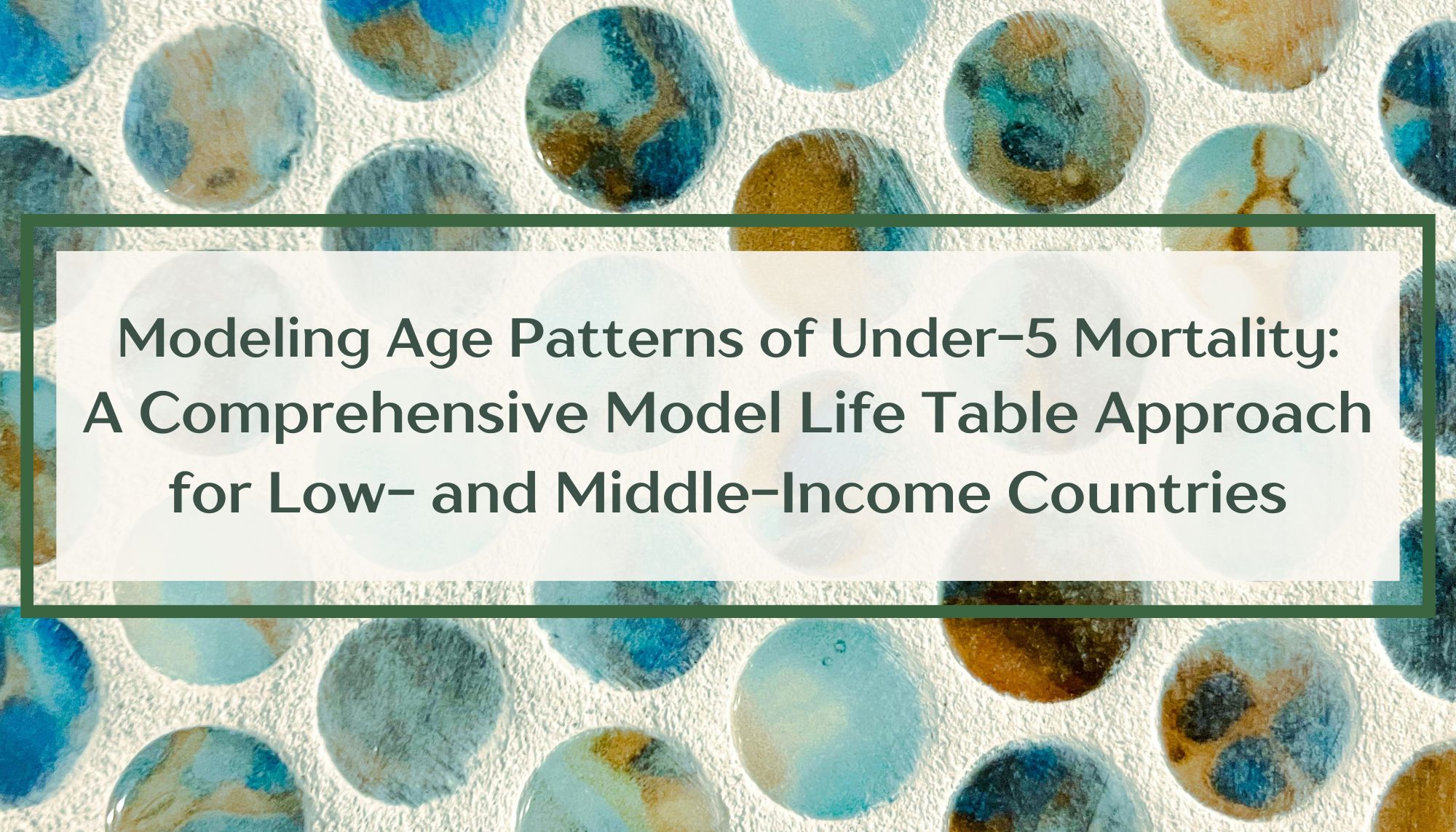
|
|
Penn at ASA 2025 |
Here is a list of events that include University of Pennsylvania researchers at the 2025 American Sociological Association (ASA) Annual Meeting. |
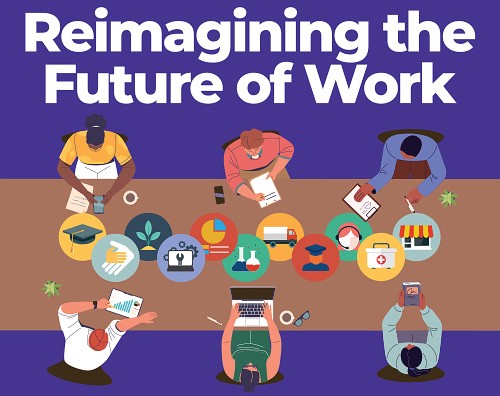
|
|
In Memoriam: Douglas C. Ewbank |
We are deeply saddened to announce the passing of Douglas C. Ewbank, Emeritus Research Professor of Sociology and former Associate Director of both the Population Studies Center and the Population Aging Research Center, on July 22, 2025, at the age of 77. Dr. Ewbank earned his Ph.D. in Economics from Princeton University in 1975. He joined the University of Pennsylvania as a Senior Research Investigator in 1982, after working at Stanford University, the Harvard School of Public Health, the University of Dar es Salaam, and Bowdoin College. He also interned at the Population Council and the American Friends Service Committee. In the past, he served on the Board of Director's of the Population Association of America. Doug’s early research focused on the demography of tropical Africa and genetic differences in mortality by genotype. He collaborated with Penn's Alzheimer's Disease Center on various aspects of Alzheimer’s and Parkinson’s diseases, co-authoring several clinical studies on these topics. Additionally, his research addressed longevity and chronic disease in older adults, including studies on excess mortality associated with Alzheimer’s disease. His most recent work documented the social-demographic history of West Philadelphia. In addition to his research, he played an important role training several generations of GGD students via his teaching and mentoring.
The Life Celebration for Douglas C. Ewbank:
|

|
|
Defaulting Some DC Plan Assets into Annuities Could Improve Income in Retirement | Olivia Mitchell |
'Our research shows that … integrating deferred income annuities as a default in [retirees’] DC plan payout structure can overcome the behavioral factors driving non-annuitization and make retirees materially better off,” Mitchell says,' - PlanSponsor Olivia Mitchell told PlanSponsor about her research on converting assets into annuities. Citation: "Defaulting Some DC Plan Assets Into Annuities Could Improve Income in Retirement," PlanSponsor, E Boyle, July 8, 2025.
|

|
|
Wharton Economist Explains What Data Tells Us About Women Having It All | Corinne Low |
When asked about the burnout that women face both at home and at work, Corinne Low told WUSA9, "I started this story back seventy years ago. We went from a model of division of responsibility where husbands worked in the market and the wives took care of a zillion-and-one things at home, to a model where gender roles have converged in the workplace. Women can now play the same role in the market as men; they can earn as much as men, but they haven't converged at home. Men do the same amount of housework today as they did in 1970." Watch the full interview here: "Wharton Economist Explains What Data Tells Us About Women Having It All" WUSA9, July 9, 2025. |

|
|
These LA Community College Students are Getting Paid to go to School. Here’s How | Amy Beth Castro |
'Amy Beth Castro, lead researcher on the BOOST study said, “These students were saying, ‘I am pursuing higher education to be somebody who has a degree, and I want to learn because it has value for me and dignity to me, and it’s the way that I want to honor my family,"' - CalMatters Castro discusses the research and effects of the BOOST program she has spearheaded. Citation: "These LA Community College Students are Getting Paid to go to School. Here’s How," CalMatters, A E Moore, June 23, 2025. |

|
|
The True Cost of The GOP’s Megabill Will Be Measured in Lives. Thousands of Lives. | Eric Roberts |
"These cuts will cost more than 51,000 people their lives every year. That’s not hyperbole. It’s a predictable result when you cut off health insurance to people who are old, poor and sick. And it’s based on analyses and projections from researchers at the University of Pennsylvania, Harvard and Yale." - Eric Roberts for MSNBC In a recent op-ed for MSNBC, PARC researcher Eric Roberts and co-author José Figueroa discussed the impact of cuts to Medicaid funding and other data-backed ways to improve the cost-effectiveness of the program. Citation: "The true cost of the GOP’s megabill will be measured in lives. Thousands of lives," MSNBC, E Roberts & J Figueroa, June 30, 2025.
|

|
|
Can Social Media Be Less Toxic? | Duncan Watts |
"In a new paper in Nature Human Behavior, CSSLab member Timothy Dörr, a doctoral student at the Annenberg School for Communication, along with lab director, Annenberg professor and Penn Integrates Knowledge Professor Duncan Watts and coauthors, outlines a research plan to help scholars, policymakers, and corporate leaders identify factors that shape prosocial behavior on social media." -Penn Today Duncan Watts shared his research with the Computational Social Science Lab at Penn Today. Citation: "Can Social Media Be Less Toxic?" Penn Today, H Reissman, June 2025. Study Citation: Bail C, Dörr T, Nagpal T & Watts D. 2025. "A Research Agenda for Encouraging Prosocial Behaviour on Social Media." Nature Human Behavior. |

|
|
Who Cares? Study Reveals 50 Years of U.S. Caregiving Trends | Pilar Gonalons-Pons |
" A new study by LDI Senior Fellow Pilar Gonalons‑Pons and Zohra Ansari‑Thomas examines five decades of data to reveal how Americans divide the labor of caregiving–both paid and unpaid–for both children and adults. They find relative stability in the division of care work across domains–paid and unpaid, child and adult–but substantial changes across gender and racial groups. Notably, men are doing more at home, and care responsibilities are falling less on nonwhite women than in the past. Yet despite these changes, structural inequalities persist, and public policies have not kept pace. As policymakers grapple with how to care for the young and old among us, this research offers critical insights into who provides care now. " - Penn LDI Citation: "Who Cares? Study Reveals 50 Years of U.S. Caregiving Trends," Penn LDI, J Hinckley, June 26, 2025. Study Citation: Gonalons-Pons P & Ansari-Thomas Z. 2025 "The Social Division of Care Work Time Over Half a Century." Duke University Press |

|
|
Pa.-based Doctors, Nurses and Physical Therapists Will Soon be Able to Work in Dozens of Other States With Ease | Matthew McHugh |
'Matthew McHugh, a professor with the University of Pennsylvania School of Nursing and director for the Center of Health Outcomes & Policy Research, said the full implementation will benefit nurses by increasing job opportunities, particularly in the virtual medical landscape, and in attracting more people to the field.“It creates more opportunities for things like telehealth and virtual nursing, which are emerging as new models of care,” McHugh said Tuesday. “It’s also much more attractive to newer and younger nurses who are often changing jobs in shorter periods of time.”' - The Philadelphia Inquirer Matthew McHugh told The Inquirer when discussing Governor Josh Shapiro's decision to join the multistate healthcare compacts for doctors, nurses, and physical therapists. Citation: "Pa.-based Doctors, Nurses and Physical Therapists Will Soon be Able to Work in Dozens of Other States With Ease," The Philadelphia Inquirer, W Ruderman, June 25, 2025. |

|
|
House Bill Seen Causing 51,000 Preventable Deaths Annually | Eric Roberts & Rachel Werner |
"Researchers projected that the (Big Beautiful) Bill’s Medicaid cuts, shortened Affordable Care Act enrollment windows, and new administrative hurdles could increase the nation’s uninsured population by 60% and result in more than 51,000 additional deaths each year." - Penn LDI PARC researchers Eric T. Roberts and Rachel M. Werner were both panellists on the June 18 virtual seminar on the Bill and its effects. Citation: "House Bill Seen Causing 51,000 Preventable Deaths Annually," Penn LDI, H Levins, June 23, 2025. |

|
|
The Future of Healthy Aging and Retirement | Olivia Mitchell |
'Wharton’s Mitchell proposed that the focus must shift from “living longer” to “living better.” That is, the challenge is to find new ways to maximize our “healthspan,” or the number of years we live unencumbered by the chronic diseases of old age.' - Knowledge at Wharton Citation: "The Future of Healthy Aging and Retirement," Knowledge at Wharton, S Parameshwaran, June 17, 2025. |

|
|
LDI at 2025 AcademyHealth Poster Displays | Robert Burke |
PARC researcher Robert Burke pictured at an Academy Health Poster Session. (Photo Credits: Hoag Levins) |
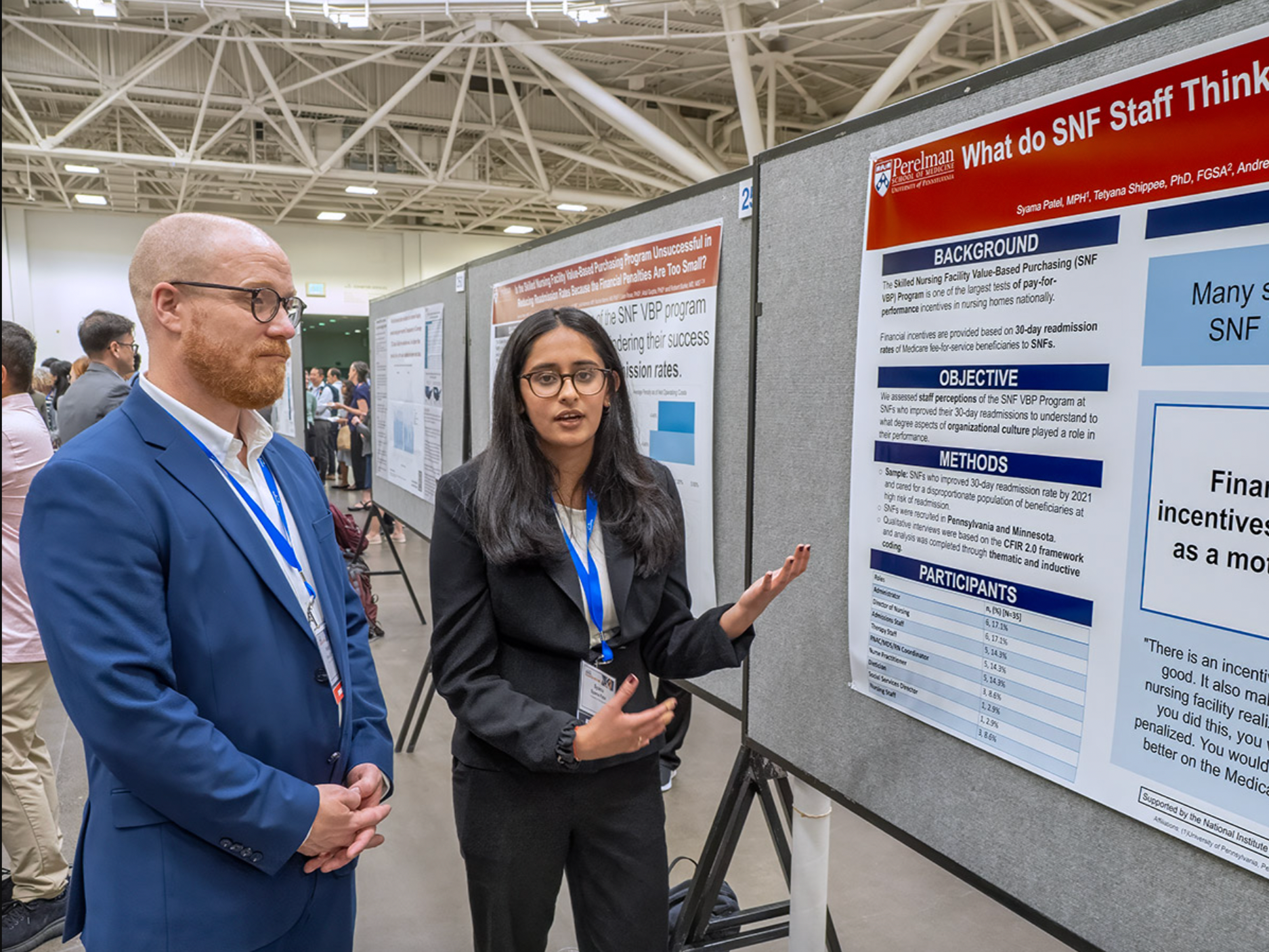
|
|
A Bold Idea to Raise the Birthrate: Make Parenting Less Torturous | Corinne Low |
“What is it that is making this hard for women right now?” as Corinne Low, a Wharton School expert on economics, public policy and gender, said in conversation with me recently, “And how do we solve those things?” -- New York Times Corinne Low provides insight on challenges to raising the U.S. birthrate. Citation: "A Bold Idea to Raise the Birthrate: Make Parenting Less Torturous," New York Times, A L Sussman, June 15, 2025. |

|
|
Medicare’s Skilled Nursing Facility Value-Based Purchasing Program Fails to Lower Hospital Readmissions | Atul Gupta, Rachel Werner & Robert Burke |
'LDI Senior Fellows Robert Burke, Atul Gupta, LDI Executive Director Rachel M. Werner, and colleagues... assessed the impact so far of Medicare’s value-based payment program for skilled nursing facilities. Their study is the most extensive analysis to date and the first to use beneficiary-level data. “The program is not currently working,” Burke said. “However, upcoming changes to the structure and measures offer an opportunity to test if it’s effective for different patient care outcomes.”' - Penn LDI Citation "Medicare’s Skilled Nursing Facility Value-Based Purchasing Program Fails to Lower Hospital Readmissions," Penn LDI, C Tachibana, June 12, 2025. Study Citation: Burke R E, Hutchins F, Heintz J, Appel S, Norman J, Patel S, Gupta A, Rose L, Werner R M. 2025. "Skilled Nursing Facility Value-Based Purchasing Failed To Achieve Hospital Readmission Reductions And Other Targets." Health Affairs. |

|
|
For-Profit Hospitals Invest Less in Nursing Services | Karen Lasater |
"Our results underscore the need for stronger policy oversight to ensure all hospitals are adequately resourced for their nursing services. States considering safe nurse-staffing legislation should view our results as evidence that safe staffing and supportive work environments are both achievable and essential for patient safety." - Penn LDI Karen Lasater provided insight on the regulation of nurse staffing and conditions in for-profit hospitals. Citation: "For-Profit Hospitals Invest Less in Nursing Services," Penn LDI, M Meline, June 11, 2025. |
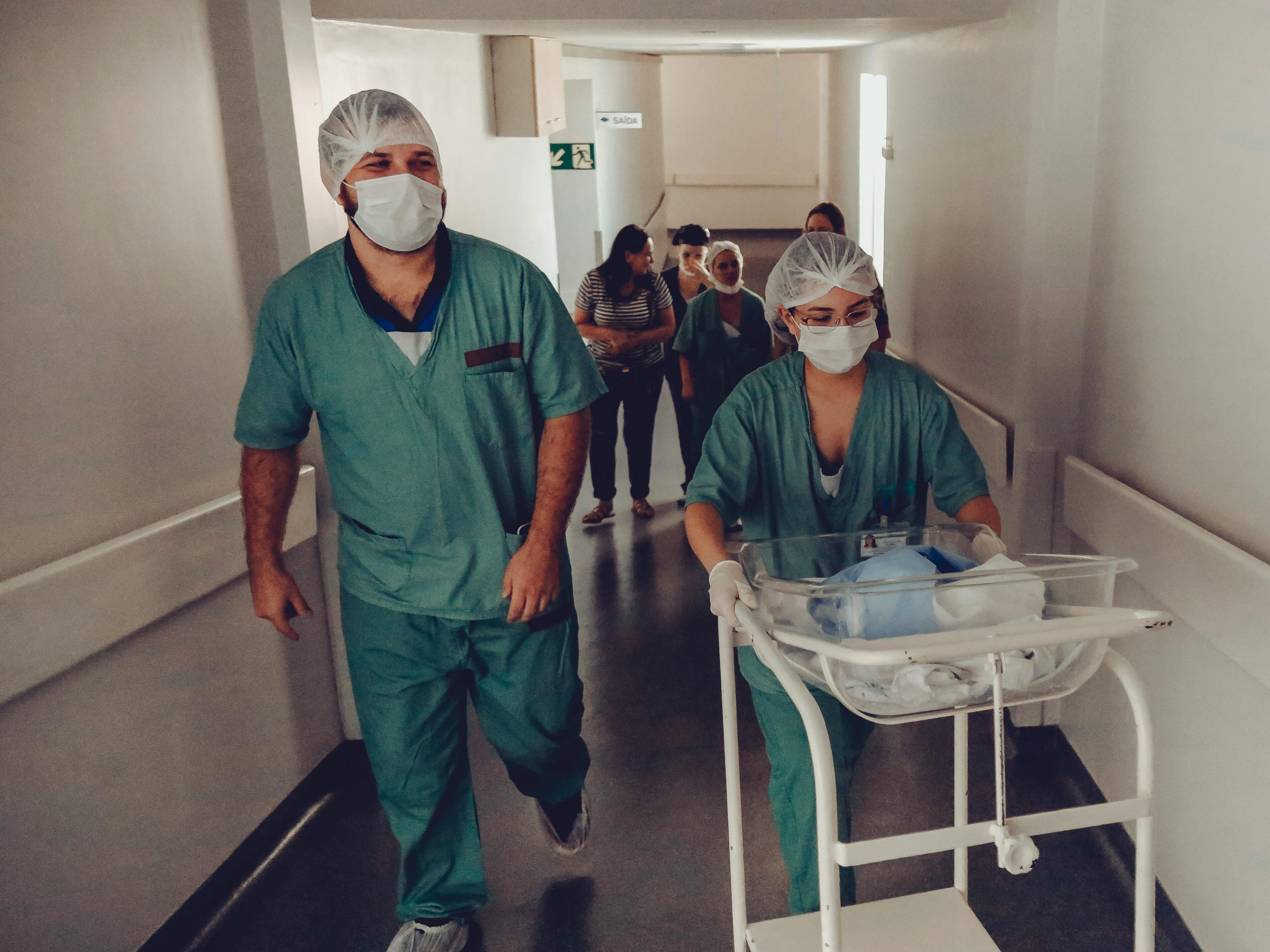
|
|
New Working Paper: The Association of Spirituality & Memory in Older Black and White U.S. Adults |
A new paper by Katherine C. Britt, Fanghong Dong, Jill B. Hamilton, Lauren M. Massimo, Nancy A. Hodgson, Shana D. Stites and Dawn Mechanic-Hamilton was published in the Population Center Working Papers Series. Title: The Association of Spirituality & Memory in Older Black and White U.S. Adults Abstract: This study investigates associations between religiousness and spirituality with memory and executive function among cognitively unimpaired older Black and White adults. We examined data from the Aging Brain Cohort (ABC) at The University of Pennsylvania Alzheimer’s Disease Research Center from 2021-2022. Participants who reported higher spirituality but not religiousness had better memory but not executive function, controlling for age, education, sex, and social interaction. Greater spirituality is associated with better memory among older Black and White Americans in this sample, informing a greater understanding of the underlying connection between spirituality and cognitive health. Citation: Britt, Katherine C., Fanghong Dong, Jill B. Hamilton, Lauren Massimo, Nancy Hodgson, Shana D. Stites and Dawn Mechanic-Hamilton. 2025. “The Association of Spirituality & Memory in Older Black and White U.S. Adults.” University of Pennsylvania. Population Center Working Paper (PSC/PARC), 2025-119. |

|
|
An Expensive Alzheimer’s Lifestyle Plan Offers False Hope, Experts Say | Jason Karlawish |
"Others have expressed similar unease. In 2020, Dr. Joanna Hellmuth, then a neurologist at the University of California, San Francisco, published an article in The Lancet Neurology pointing to a number of “red flags” within Mr. Bredesen’s studies, including “the substantial potential for a placebo effect.” Dr. Jason Karlawish, the co-director of Penn Memory Center at the University of Pennsylvania, said Mr. Bredesen’s research and recommendations don’t adhere to the standards of medicine. The Alzheimer Society of Canada has gone so far as to say Mr. Bredesen is offering “false hope.”- New York Times PARC's Jason Karlawish offers insight into the NYT's investigation of a popular treatment for the reversal of Alzheimer's symptoms. Citation: " An Expensive Alzheimer’s Lifestyle Plan Offers False Hope, Experts Say," The New York Times, L Gellman, May 21, 2025. |

|
|
Penn Experts Warn New Vaccine Policy Could Undermine Public Health | Alison Buttenheim |
'"A policy like this new federal placebo testing requirement could open the door in state legislatures to propose all kinds of bills to loosen our vaccine mandate system,” Buttenheim said.' -Penn LDI Alison Buttenheim discusses the potential effects of the new vaccine policy undertaken by the U.S. Department of Health and Human Services. Citation: "Penn Experts Warn New Vaccine Policy Could Undermine Public Health," Penn LDI, H Levins, May 21, 2025. |

|
|
Dolores Albarracín Awarded 2024 BBVA Foundation Frontiers of Knowledge Award in Social Sciences |
Dolores Albarracín, is a recipient of the 2024 BBVA Foundation Frontiers of Knowledge Award in Social Sciences. The honor recognizes recipients as “revolutionizing the way we understand and measure attitudes” through their research. Dolores Albarracín has focused her research on understanding how attitudes can be changed, especially with regard to persuasive messages. In her book Action and Inaction in a Social World: Prediction and Change of Attitudes and Behaviors, she shows that appeals to action are more effective than those encouraging inaction when the goal is to achieve a given behavior, and that when a recipient lacks time to analyze a persuasive message, their attitude and behavior will be determined by the emotional factor. Citation: "Dolores Albarracín: 2024 BBVA Frontiers of Knowledge Award," University of Pennsylvania Almanac, May 13, 2025. |

|
|
Disease, Fertility, and Inequity | Letícia Marteleto |
"For the past five years, Letícia Marteleto, Presidential Penn Compact Professor of Sociology, has studied the effects of Zika and COVID on women in Brazil. So far, she’s found that the back-to-back crises have significantly affected family-planning decisions—and there’s much more to learn." -- OMNIA Citation: "Disease, Fertility and Inequity," OMNIA, E Crunden, May 5, 2025. |

|
|
Scott Halpern Co-authors Research on Underrepresentation in Cardiovascular Clinical Trials, Penn LDI |
Scott Halpern co-authors a study revealing significant underrepresentation of women, Black, and Hispanic/Latinx individuals in cardiovascular clinical trials, highlighting the need for more inclusive research practices, reports Penn LDI. Citation: "A Novel Study Quantifies Who is Missing from Cardiovascular Clinical Research," Penn LDI, C Weeks, March 31, 2025. |
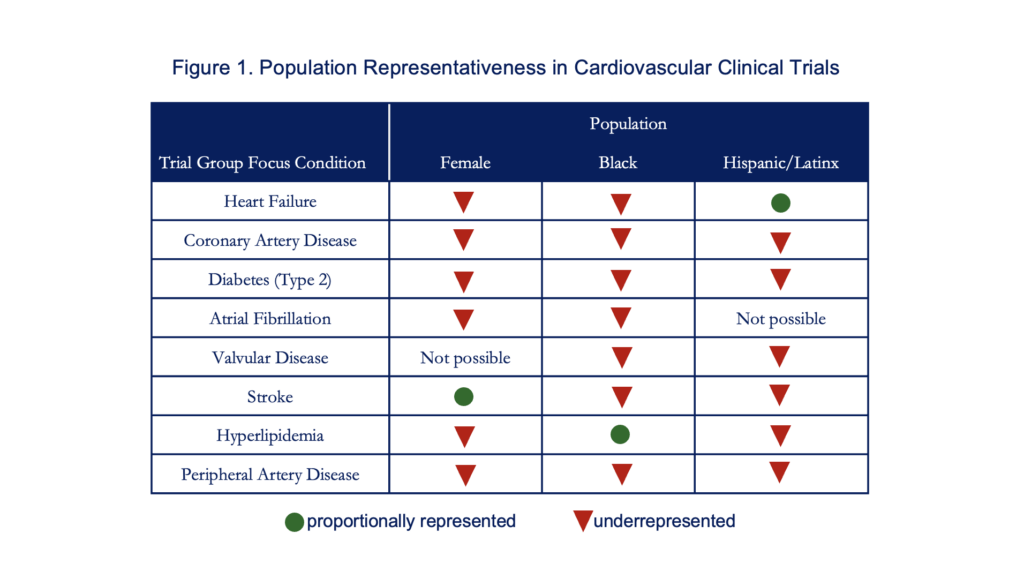
|
|
Jesús Fernández-Villaverde Share How Machine Learning Is Transforming Economics, OMNIA |
At a Data Driven Discovery Initiative event, Jesús Fernández-Villaverde shared how he and his team use machine learning to uncover how "dark ships" evade sanctions, illustrating how AI is transforming economic research, reports OMNIA. Citation: "At the Intersection of Science and AI," OMNIA, April 28, 2025. |
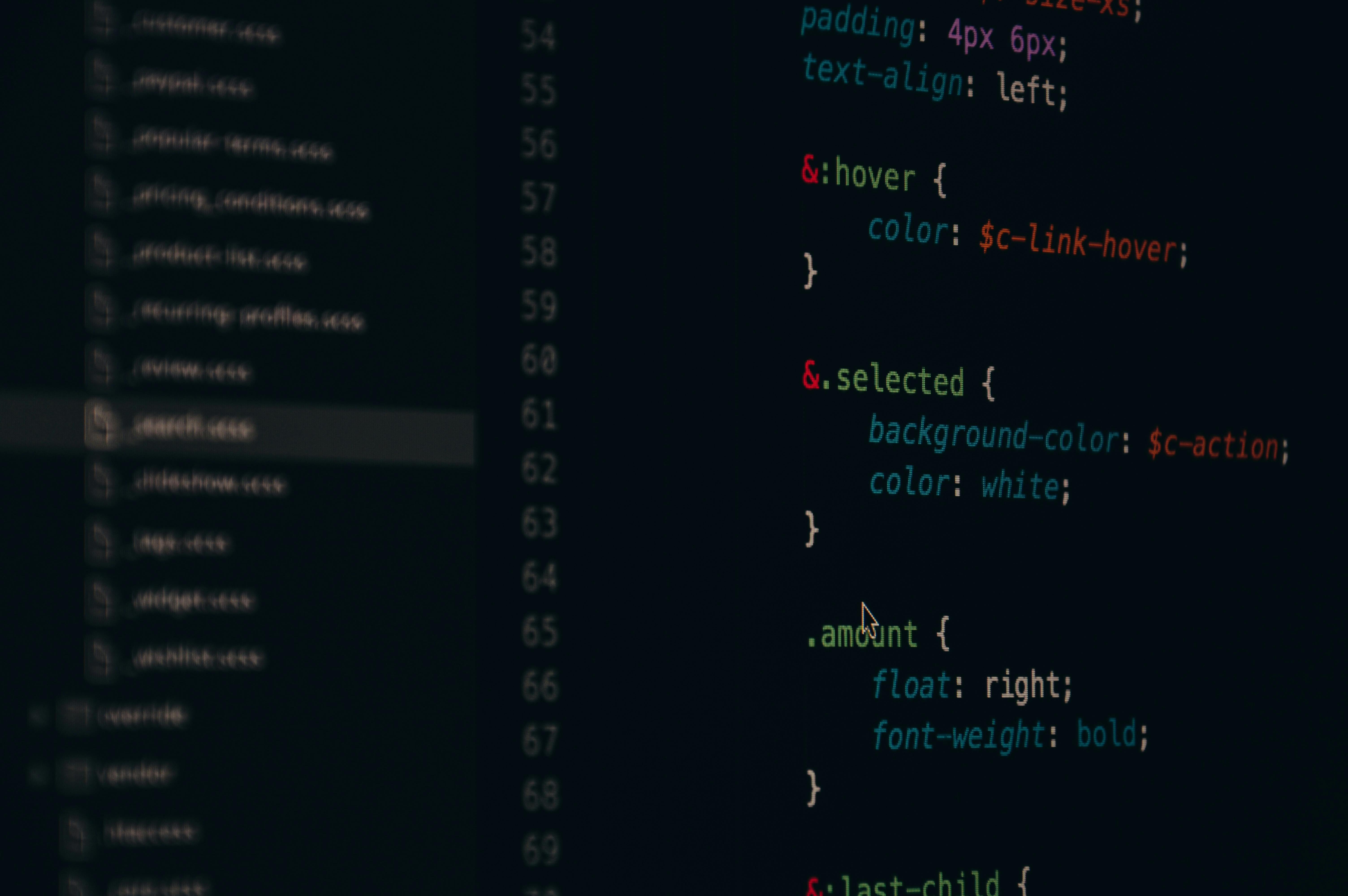
|
|
Rachel Werner Co-Authors Study on Shifting Patterns in Medicare Home Health Use, Penn LDI |
Rachel Werner co-authored a study examining how Medicare Advantage plans have influenced the utilization of home health care services, reports Penn LDI. Citation: "How Medicare Advantage Changed Home Health Care Use," Penn LDI, M Meline, April 23, 2025. Kim S, Qi M. et al. 2025. "Home Health Care Use Among Medicare Beneficiaries From 2010 to 2020." Sage Journals. |

|
|
Chenyi Ma & Dennis Culhane Co-Authored Research on the Impact of Economic Stressors and Vaccination on Anxiety Levels During the Pandemic, Penn Today |
Penn Today highlights Chenyi Ma and Dennis Culhane's research showing that economic hardship—not race alone—drives pandemic-related anxiety disparities across demographic groups. Citation: Ma C, Culhane D. et al. 2025. "Generalized Anxiety Disorder Prevalence and Disparities Among U.S. Adults: The Roles Played by Job Loss, Food Insecurity, and Vaccinations During the COVID-19 Pandemic," The Journals of Gerontology: Series B. |

|
|
Shana Stites & Rebecca Brown Wrote an Op-Ed Urging Better Support for Dementia Caregivers in the U.S. Health System, Chicago Tribune |
Shana Stites and Rebecca Brown wrote an op-ed for the Chicago Tribune arguing that the U.S. health system must better support dementia caregivers, whose well-being directly impacts those they care for. Citation: Related Article |
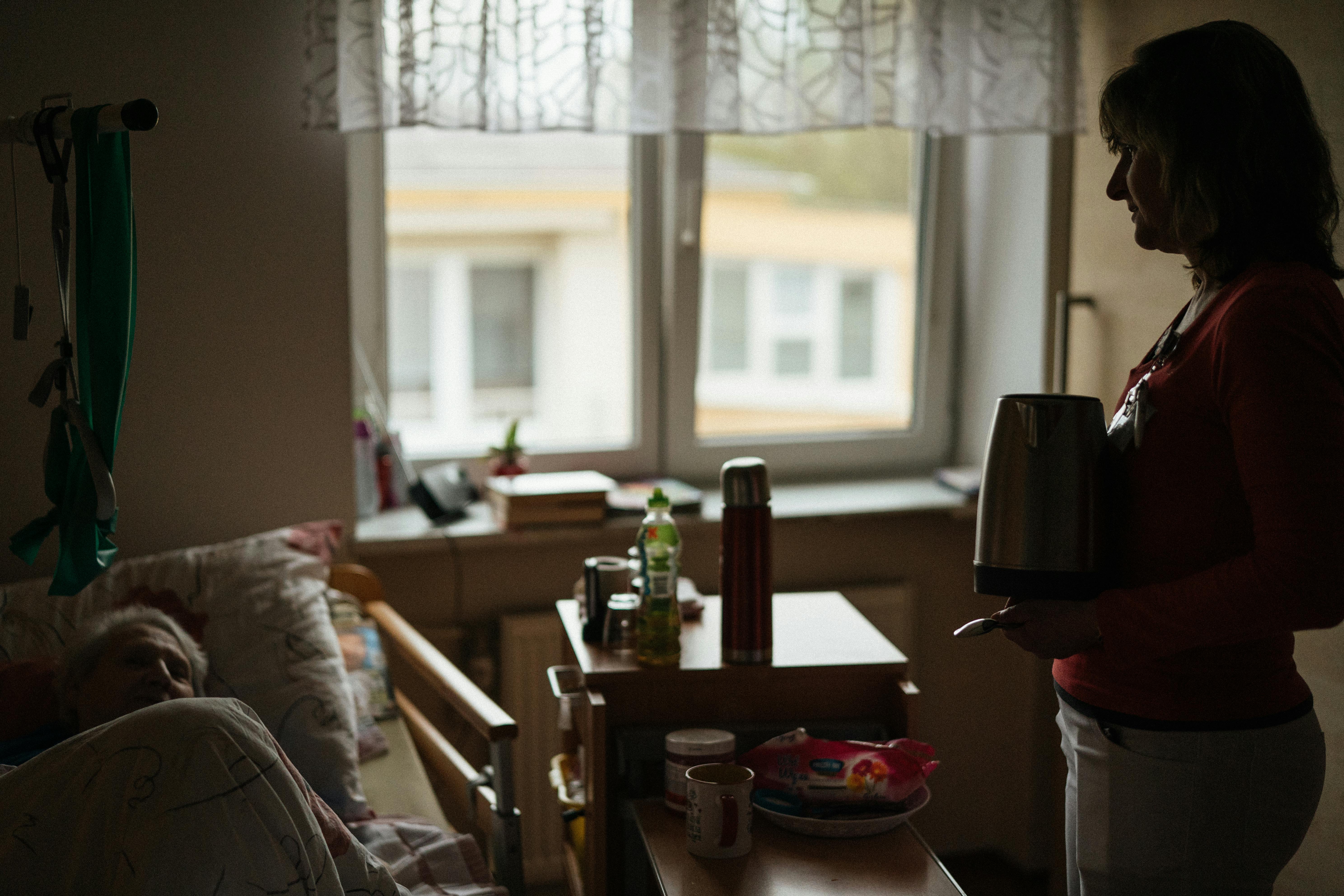
|
|
David Kirik Highlights Airbnb Occupants' Vulnerability to Crime in Quaker Days Lecture, OMNIA |
OMNIA features David Kirk's one-minute lecture, where he discusses his research on Airbnb occupants' vulnerability to crimes such as robbery, burglary, and theft. Citation: |

|
|
Olivia Mitchell Writes Op-Ed on How Financial Skills Decline with Age, MarketWatch |
Olivia Mitchell's op-ed in MarketWatch highlights research showing that financial and health literacy decline steadily with age, especially among older, less educated, and lower-income individuals, underscoring the need for early and sustained literacy interventions. Citation: "Financial Skills Slip as We Age: Here’s How We Can Learn to Stay Sharp," Master Watch, O Mitchell, April 18, 2025. |

|
|
Alison Buttenheim Addresses the Rise of Vaccine Hesitancy and Strategies to Rebuild Public Trust, SCIAM |
“Learn how to have productive conversations about difficult topics with people you love.” Alison Buttenheim told SCIAM, “Beliefs and identity are tightly interwoven, so changing beliefs may require a painful—or impossible—shift in identity,” Citation: |

|
|
Olivia Mitchell Advocates for Early Financial Education at Home to Improve Financial Literacy, Al Día |
Olivia Mitchell advocates for starting financial education at home from an early age to improve financial literacy and reduce economic burdens, reports Al Día. Citation: "How to Raise Financially Smart Kids, According to a Wharton Economist," Al Día, A M Quevedo, April 16, 2025. |

|
|
Dolores Albarracín Co-Authors Study on How Harm Reduction Policies Boost Trust in Local Government, Annenberg |
Annenberg highlights that Dolores Albarracín co-authored a study demonstrating how support for harm reduction policies boosts trust in local government in rural US communities. Citation: "Do ‘Harm Reduction’ Interventions for Substance Use Lower or Raise Trust in Government?" Annenberg, April 15, 2025. Liu X, Albarracín D. et al. 2025. "Comprehensive Drug Policies Increase Trust in Local Government: An Analysis of Authorities’ and Residents’ Perspectives in Rural US Appalachian and Midwestern Counties." Springer Nature Link. Related Article: Do Harm Reduction Interventions for Substance Use Lower or Raise Trust in Government?
|

|
|
Olivia Mitchell Emphasizes Teaching Children About Financial Literacy, Knowledge at Wharton |
Olivia Mitchell emphasizes that early financial literacy education for children fosters lifelong money management skills, reports Knowledge at Wharton. Citation:
|

|
|
Olivia Mitchell Co-Authored Research on Financial Literacy in Adults Declines with Age, The Daily Pennsylvania |
The Daily Pennsylvanian reports that a new study co-authored by Olivia Mitchell finds older adults' financial and health literacy declines by about one percentage point per year, raising concerns about decision-making in later life. Citation:
|

|
|
Pilar Gonalons-Pons Co-authors Study Linking Childcare Costs to Family Income Inequality, OMNIA |
OMNIA highlights study co-authored by Pilar Gonalons-Pons which examines the high cost of childcare in the U.S. disproportionately reduces income for less-educated women, worsening family income inequality—an effect largely absent in countries with robust childcare support systems. Citation: Gonalons-Pons P, Marinescu I. et al. 2024. "Care Labor and Family Income Inequality: How Childcare Costs Exacerbate Inequality among U.S. Families," American Sociological Review. |

|
|
Derek Griffith Talks About Addressing Gender Disparities and Advancing Health Equity in Health Care, Talk of Iowa |
In the Talk of Iowa episode titled "How Gendered Understandings of Medicine Have Influenced Health Care", Derek Griffith discusses the historical and ongoing impact of gender disparities in health care. Citation: "How Gendered Understandings of Medicine have Influenced Health Care," Talk of Iowa, C Nebbe, C Troutman, April 10, 2025. |

|
|
Dorothy Roberts Calls Out the 'Family Policing System' at Philly Child Welfare Reform Summit, The Philadelphia Inquirer |
The Philadelphia Inquirer reports that Dorothy Roberts denounces systemic racism in Philadelphia’s child welfare system, calling for a shift from family surveillance to meaningful support. Citation: |

|
|
Angela Duckworth Led the "Phones in Focus" Initiative to Study and Improve School Cell Phone Policies, PR Newswire |
PR Newswire reports that Angela Duckworth has launched the "Phones in Focus" initiative to collect educator input on school cell phone policies. The aim is to use this data to develop evidence-based recommendations that enhance student achievement and well-being. Citation: "Landmark "Phones In Focus" Initiative Aims to Collect Evidence and Inform Effective School Cell Phone Policies," PR Newswire, April 8, 2025. |

|
|
Penn Researchers at Population Association of America 2025 Annual Meeting |
Annually, Penn researchers present Papers and Posters, Moderate Talks, act as Discussants, and more at the Population Association of America's Annual Meeting. View Just the Penn@PAA Papers Here |

|
|
Atheendar Venkataramani in a Seminar Explores How Economic Policies Can Improve Population Health, Penn LDI |
Atheendar Venkataramani in a Virtual Health Lab Seminar highlights how targeted economic policies, like tax credits and unemployment support, can reduce health disparities and improve population health, especially for low-income individuals, reports Penn LDI. Citation: "Using Tax and Labor Policies to Improve Population Health," Penn LDI, H Levins, April 7, 2025. |

|
|
Olivia Mitchell Offers Practical Financial Tips for All Ages in Honor of Financial Literacy Month, Insights from Wharton |
Insights from Wharton features Olivia Mitchell offering practical advice on improving financial literacy at all ages to avoid costly mistakes and enhance long-term financial well-being. Citation: "How to Empower the Next Generation with Financial Education: April 2025 Insights from the Wharton School," Insights from Wharton, April 7, 2025. |

|
|
Atheendar Venkataramani Warns Wealth Alone Can't Shield Americans from Rising Mortality Rates, NBC News |
“It’s really concerning because, to me, what it’s saying is that the set of stressors that are harming the health of Americans is very widespread, to the point where even being wealthy or rich, you’re not going to be able to escape them,” Atheendar Venkataramani told NBC News. Citation: |

|
|
Olivia Mitchell Examines Financial Education and Practical Steps for Building Financial Literacy Across Generations |
Olivia Mitchell, in Wharton Business Daily, discusses the state of U.S. financial education, the effects of illiteracy, and how parents can teach kids essential money management skills. Citation: "Teaching Financial Responsibility: Strategies for Parents and Educators," Wharton Business Daily, April 2, 2025. |

|
|
Kevin Volpp Talks about “Food Is Medicine” Research Initiative, CHIBE |
Kevin Volpp in a Q&A with CHIBE discusses leading a national “Food Is Medicine” initiative with the AHA to design effective, scalable nutrition-based health interventions. Citation: |

|
|
Jason Karlawish Talks About Aging, Cognitive Decline, and Financial Vulnerability, Brain & Life |
“As people age, changes occur in the parts of the brain responsible for executive functioning [affecting their thoughts, emotions, and behavior], even if they don't have a condition like Alzheimer's,” Jason Karlawish told Brain & Life. Citation: "Cognitive Decline Can Lead to Financial Struggles and Scams—Here's What to Look For," Brain & Life, H Levine, April 2025. |

|
|
Olivia Mitchell Co-Authored Research on Declining Literacy in Older Adults, Knowledge at Wharton |
Knowledge at Wharton features a study co-authored by Olivia Mitchell revealing that financial and health literacy decline with age, increasing the risk of poor decisions and vulnerability among older adults—especially women. Citation: "Does Financial Literacy Decline with Age?" Knowledge at Wharton, S Parameshwaran, April 1, 2025. Boyle P, Mitchell O. et al. 2025. "Declining Financial and Health Literacy among Older Men and Women." Science Direct. Related Article: |

|
|
Dorothy Roberts Featured as One of the 50 Most Influential Leaders in Life Sciences, STAT |
STAT Names Dorothy Roberts as One of the 50 Influential People Shaping the Future of Health and Life Sciences on the 2025 STATUS List. Citation: "The Ultimate List of Leaders in Life Sciences," STAT, 2025. |

|
|
Rachel Werner Was Quoted on How Medicaid Cuts Could Hurt Nursing Home Staffing and Care Quality, Bloomberg |
“I think that nursing homes are going to really struggle,” Rachel Werner told Bloomberg “Quality of care is going to be terrible. It’s going to harm residents most of all,” but staff would also feel the pain. Citation:
|

|
|
Rachel Werner Quoted on the Devastating Impact of Potential Medicaid Cuts on Nursing Home Staffing and Resident Care, Bloomberg Law |
“I think that nursing homes are going to really struggle,” in the face of Medicaid cuts, Rachel Werner told Bloomberg Law. “Quality of care is going to be terrible. It’s going to harm residents most of all,” but staff would also feel the pain. Citation: "Nursing Homes Anxious as Republicans Ponder Deep Medicaid Cuts," Bloomberg Law, T Pugh, March 31, 2025. |

|
|
Dorothy Roberts is Featured for Her Lifelong Work on Social Justice and Advocacy, Harvard Law Bulletin |
Dorothy Roberts is featured in Harvard Law Bulletin for her work challenging systems of injustice, particularly in child welfare, reproductive rights, and criminal justice. Awarded a 2024 MacArthur Fellowship, she continues to advocate for radical social change and family support. Citation: "An Uncompromising View," Harvard Law Bulletin, C Walsh, March 31, 2025. |

|
|
Jesús Fernández-Villaverde Warns of Economic Impact of Declining U.S. Birth Rate, Newsweek |
Jesús Fernández-Villaverde discusses the impact of the declining U.S. birth rate in a Newsweek article, warning that it could significantly slow GDP growth and strain social programs. Citation: "America's Birth Rate Sparks Fears for the Economy," Newsweek, H Cameron, March 28, 2025. |
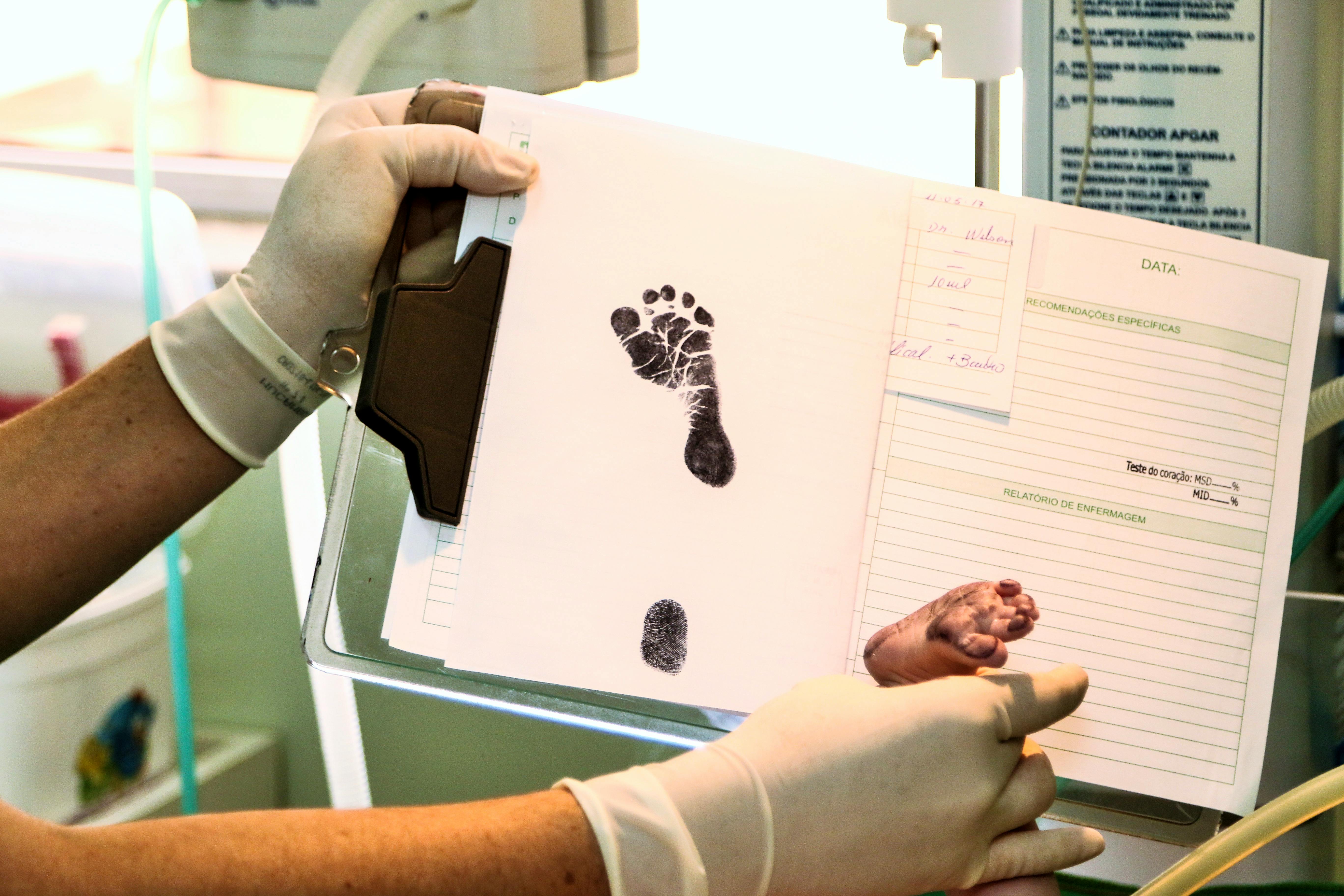
|
|
Mark Pauly Cautions Against Harmful Medicaid Cuts, Proposes Shifting Costs to Wealthier States, Penn LDI |
Mark Pauly, writing for Penn LDI, cautions that proposed Medicaid cuts could unfairly impact low-income and vulnerable groups. He advocates for wealthier states to contribute more to the program to help preserve equitable access to care. Citation: "Federal Medicaid Spending Cuts: The Wrong Ways and the Right Ways," Penn LDI, M Pauly, March 28, 2025. |
|
|
Kevin Volpp in an Interview Discusses the Food Is Medicine Initiative, Health Equity, and the Future of Nutrition Policy, Stroke |
In an interview with Stroke, Kevin Volpp explores how integrating food and nutrition into healthcare can improve outcomes, reduce costs, and promote equity through innovative, patient-centered approaches. Citation: "Author Interview: Dr. Kevin G. Volpp on Food Is Medicine: A Presidential Advisory From the American Heart Association," Stroke, H Chen, March 28, 2025. |

|
|
Duncan Watts Co-Authors Study on Designing Social Media to Foster Prosocial Behavior, Annenberg |
A new study co-authored by Duncan Watts, reported by Annenberg, outlines how social media platforms can be intentionally designed to promote kindness, cooperation, and community support online. Citation: Dorr T, Watts D. et al. 2025. "A Research Agenda for Encouraging Prosocial Behavior on Social Media," Nature Human Behavior. |

|
|
Kevin Volpp, Angela Lee Duckworth and Aaron Richterman in a Study Highlight 5 Behavioral Economics Strategies That Improve Patient Outcomes, CHIBE |
Kevin Volpp, Angela Lee Duckworth, and Aaron Richterman, in their research reported by CHIBE, highlight techniques such as gamification, incentives, and text-based nudges to help patients make healthier choices. Citation: Fanaroff A, Volpp K. et al. 2024. "Effect of Gamification, Financial Incentives, or Both to Increase Physical Activity Among Patients at High Risk of Cardiovascular Events: The BE ACTIVE Randomized Controlled Trial," Circulation. |

|
|
PSC & PARC Associates Co-author Research on Simple Visual Tool to Improve HIV Medication Adherence in Philadelphia, Penn LDI |
PSC and PARC Associates Aaron Richterman, Atheendar Venkataramani, and Alison Buttenheim co-authored a study, reported by Penn LDI, evaluating the B-OK tool's effectiveness in improving HIV medication understanding and adherence in Philadelphia. Citation: "Research Brief: Simple Visual Aids Raise Awareness and Knowledge About HIV Treatment," Penn LDI, C Tachibana, March 26, 2025. Buttenheim A, Richterman A. et al. 2025. "B-OK: A Visual and Tactile Tool for Improving HIV Mental Models in a United States Urban Center." Global Implementation Research and Applications. |
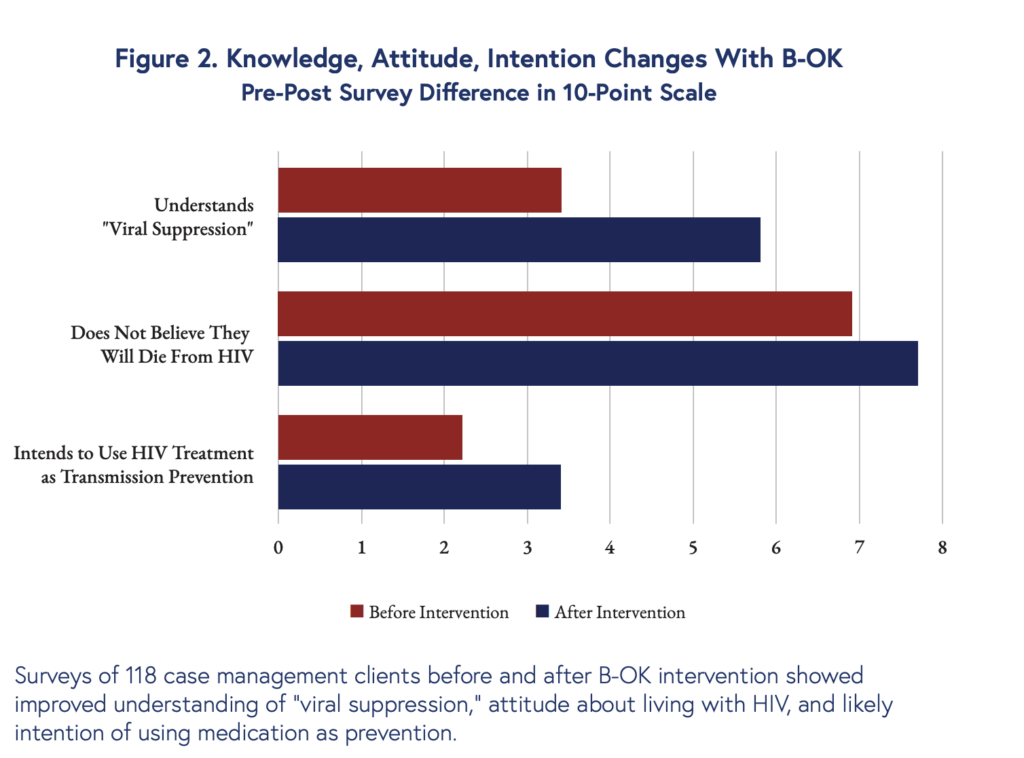
|
|
Angela Duckworth Leads Mega Study Showing Simple Nudges Can Boost Math Progress, Penn Today |
Penn Today reports that Angela Duckworth and Penn’s Behavior Change for Good Initiative found that simple, low-cost behavioral nudges for teachers can modestly boost student math progress. Citation:
|

|
|
Derek Griffith Co-Authors Study Highlighting the Need for Resources and Support Among Expectant and New Fathers, Penn Nursing |
Penn Today highlights Derek Griffith's research revealing expectant and new fathers, particularly Black American fathers, express a significant need for more resources and support to better assist mothers during pregnancy and childbirth. Citation: "Expectant and New Fathers Seek More Support to Improve Maternal Health," Penn Nursing, March 24, 2025. Griffith D.M, Jaeger E.C. et al. 2025. "Expectant and New Fathers Say They Need Resources and Sources of Support." BMC Pregnancy Childbirth 25. |

|
|
Emilio Parrado Quoted on How Immigration Is Driving Philadelphia’s Population Gains, WHYY |
“Philadelphia is still a place that’s attracting young people, professionals forming families and they are having children,” Emilio Parrado told WHYY. Citation: "Immigration Is Driving Philadelphia’s Population Gains, Census Data Shows," WHYY, K Mosbrucker-Garza, March 24, 2025. |

|
|
Dolores Albarracín Co-authors Study Revealing People Flatter Others—Except When They Dislike Them, Annenberg Public Policy Center |
A study led by Dolores Albarracín and reported by the Annenberg Public Policy Center finds that people tend to share flattering feedback to boost others’ self-image—except when they dislike them or are prompted to prioritize accuracy. Citation: Albarracin D, Shen X. et al. 2025. "Enhancing Others Through Information Selection: Establishing the Phenomenon and Its Preconditions." APA PsycNet. |

|
|
Derek Griffith Project Unpacks What Makes Black Barbershop Health Programs Succeed—or Fail, Penn LDI |
Derek Griffith’s study, reported by Penn LDI, examines why some Black barbershop health interventions succeed while others fail. Using an innovative “implementation premortem” method, the research highlights trust, access, and cultural alignment as critical success factors. Citation: Griffith D, Dylan W. et al. 2024. "Application of an Implementation Premortem: A Novel Qualitative Approach Leveraging Prospective Hindsight to Enhance Barbershop Health Interventions for Black Men." Translational Behavioral Medicine. |

|
|
Hanming Fang Co-authors Research on the Connections between Chinese High-speed Rail and Electric Vehicles Sales, Penn Today |
Penn Today features Hanming Fang's study revealing that high-speed rail expansion in China significantly boosted electric vehicle sales, highlighting a model for cleaner, more equitable transportation. Citation: Hanming F, Li M. et al. 2025. "High-Speed Rail and China’s Electric Vehicle Adoption Miracle." PIER. |

|
|
Lance Freeman Featured for Transformative Work on Urban Equity and Neighborhood Change |
Lance Freeman is featured in Penn Today for his groundbreaking work on urban equity, gentrification, and neighborhood dynamics. Drawing from personal experience and data-driven research, he aims to shape more just and inclusive cities. Citation: |

|
|
Dennis Culhane Co-authored Study on the Funding Gap in Housing First Programs, National Alliance to End Homelessness |
Dennis Culhane co-authored a study for the National Alliance to End Homelessness on the cost and policy barriers to fully implementing Housing First for sheltered homelessness. Citation: Culhane D, Fowle M. et al. 2025. "How Much Would It Cost to Provide Housing First to All Households Staying in Homeless Shelters?" National Alliance to End Homelessness. |
|
|
New Working Paper: Intergenerational Mobility in Depression and Anxiety in India |
A new working paper by Justine Hervé, Subha Mani, Jere R. Behrman, Ramanan Laxminarayan and Arindam Nandi was published in the Population Center Working Paper Series. Title: Intergenerational Mobility in Depression and Anxiety in India Abstract: This paper is the first to provide estimates of intergenerational associations in mental health for a low- and middle-income country. Using rich mental health data on ∼4,000 parent-child pairs in India, we find intergenerational associations in depression and anxiety scores to be 0.61 and 0.68, respectively, suggesting low mobility in mental health. However, once we allow for the mobility estimates to vary along the distribution of parental mental health, we find notable heterogeneity- while minimal symptoms of anxiety and depression in parents persist into the next generation, children of parents with mild to severe symptoms experience significant improvements in mental health. This upward mobility in mental health is largely driven by high socioeconomic-status households. Importantly, we show that even minimal symptoms have significant economic implications for both children and adults. Our findings suggest that programs that improve mental health in one generation can also facilitate intergenerational mobility in mental health and related outcomes. Citation: Hervé, Justine, Subha Mani, Jere R. Behrman, Ramanan Laxminarayan and Arindam Nandi. 2025. “Intergenerational Mobility in Depression and Anxiety in India. University of Pennsylvania. Population Center Working Paper (PSC/PARC). 2025-116.
|
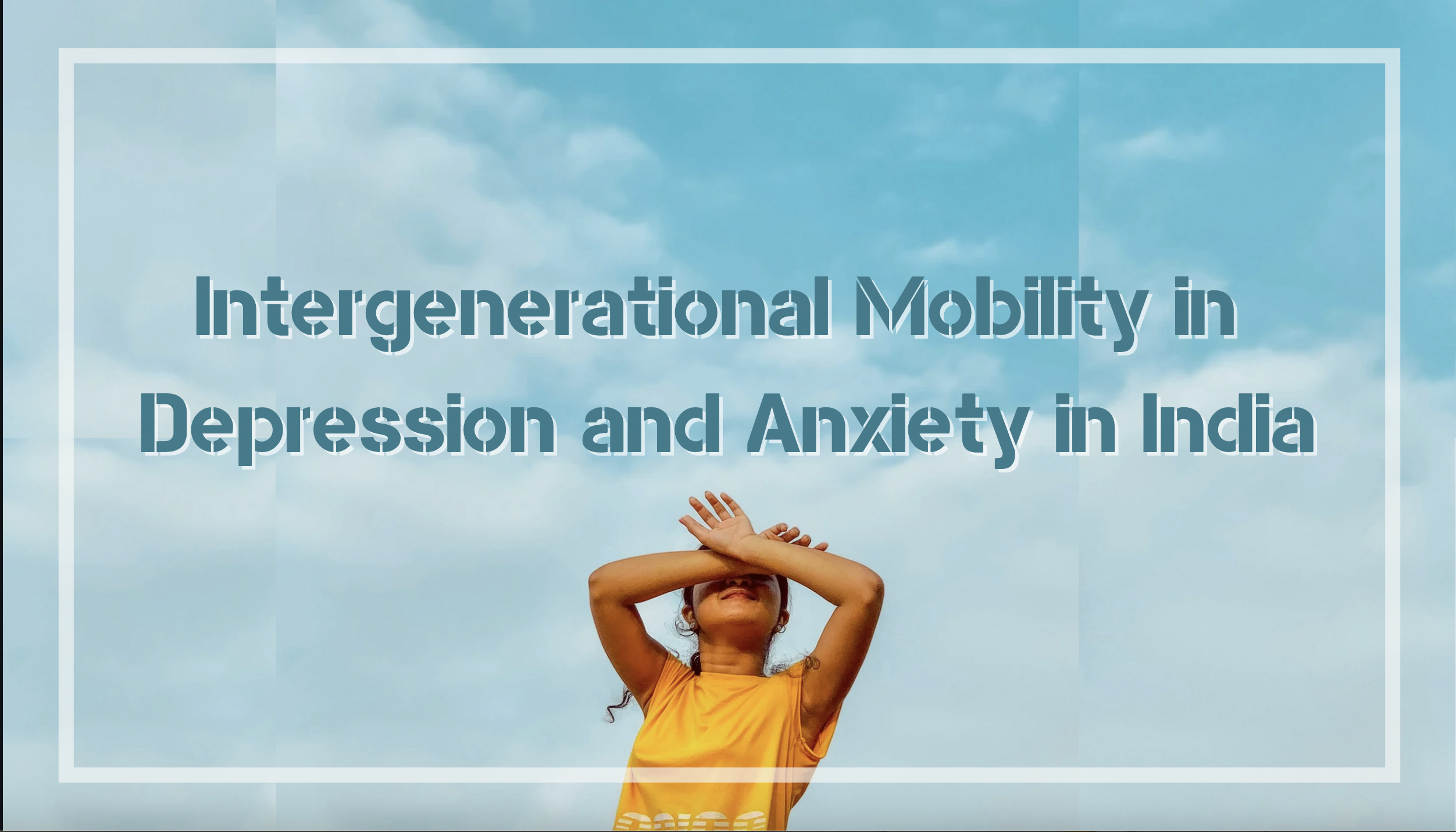
|
|
Jason Karlawish Writes an Op-ed in Response to Doctored and the Debate Over Alzheimer's Drugs, MedPage |
Jason Karlawish wrote an op-ed in MedPage Today, responding to Doctored, defending the integrity of Alzheimer's drug research and highlighting the importance of scientific transparency and self-correction. Citation: "How a Book Is Undermining Progress Against Alzheimer's," MedPage Today, J Karlawish, March 5, 2025. Related Articles: Rebutting Doctored: Alzheimer’s researchers defend integrity, science, and progress. |

|
|
Rebecca Anna Schut Awarded Grant to Track State Immigration Policies and Demographic Shifts (1990–2025), Russell Sage Foundation |
The Russell Sage Foundation awarded a grant to Rebecca Anna Schut for her research on how demographic shifts influence U.S. state immigration policies from 1990 to 2025. Citation: |

|
|
George Demiris co-authors research on AI's role in palliative care decision-making and ethical considerations, Penn Today |
Penn Today reports that Penn Nursing Ph.D. student Oonjee Oh, with faculty advisors George Demiris and Connie Ulrich, explores AI's role in ethical palliative care decision-making in their research study. Citation: "Exploring the Role of AI in Palliative Care and Decision-making," Penn Today, E Moser, February 28, 2025. Oh O, Demiris G. et al. 2024. "The Ethical Dimensions of Utilizing Artificial Intelligence in Palliative Care." Sage Journals.
|

|
|
Diana Montoya-Williams Co-authors Article on Five Key Impacts of the Dobbs Decision on Pregnancy and Pediatric Care, Penn LDI |
Diana Montoya-Williams co-authors an article discussing the impact of the Dobbs decision on pregnancy and pediatric care. The article highlights five key changes, including reduced abortion access, less availability of critical surgeries, and increased healthcare costs for infants with congenital anomalies, reports Penn LDI. Citation: "Ripple Effect: Five Ways The Dobbs Decision is Transforming Pregnancy and Pediatric Care," Penn LDI, J Hinckley, February 26, 2025. "The Dobbs Decision and Pediatric Healthcare: Preparing for Unintended Consequences," Pediatric Research, S Lorch, A Wilpers, D Montoya-Williams, November 23, 2024. |
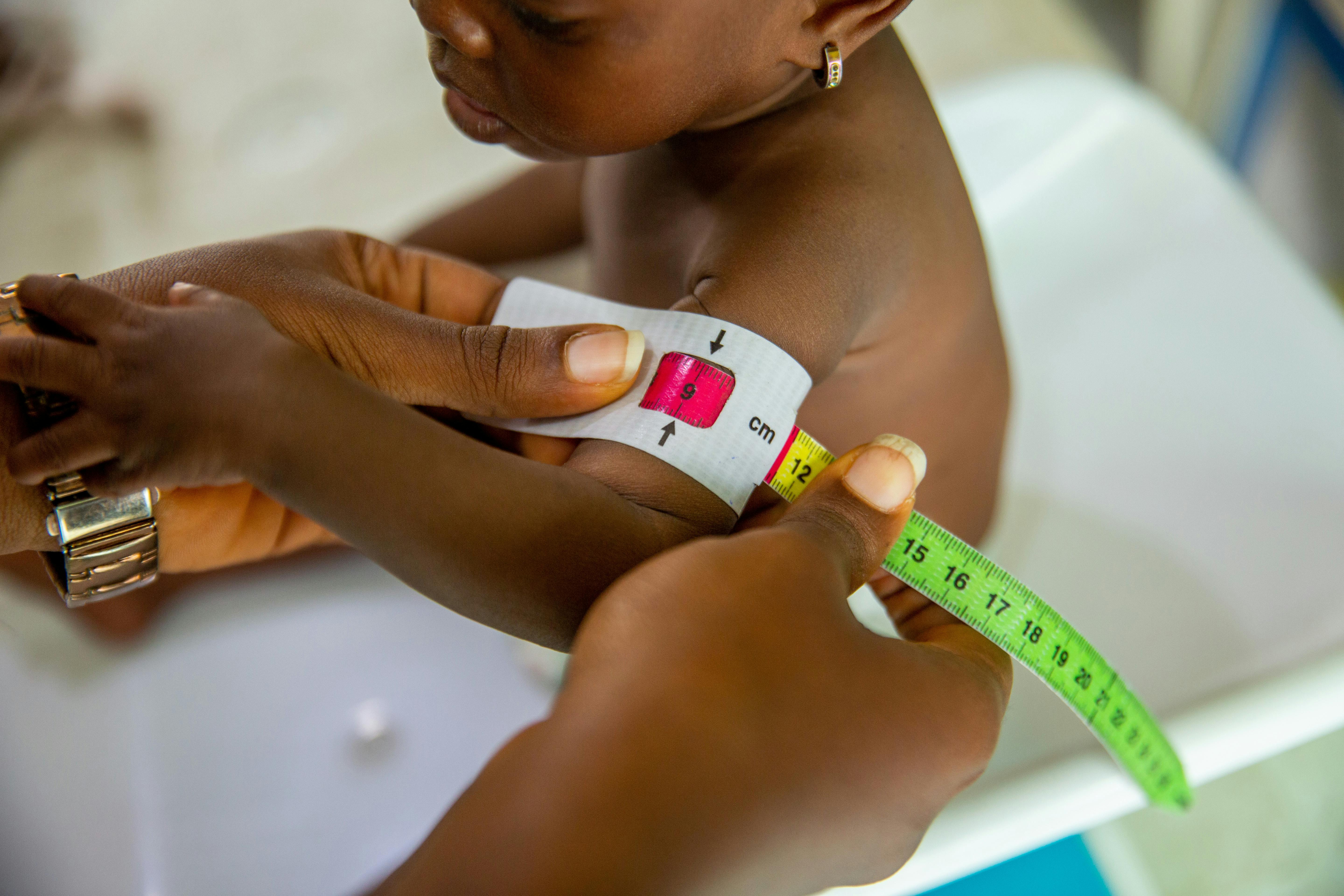
|
|
Iliana V. Kohler and Hans-Peter Kohler Co-Authored Research on Alzheimer's Disease Prevalence and Blood Biomarkers in Malawi, Penn Memory Center |
Iliana V. Kohler and Hans-Peter Kohler co-authored a study exploring the use of dried plasma spot technology to measure Alzheimer's disease prevalence in Malawi's aging population, addressing global health disparities. Citation: "Bridging Borders: Advancing Aging Research in Malawi," Penn Memory Center, M McCarthy, February 26, 2025. |
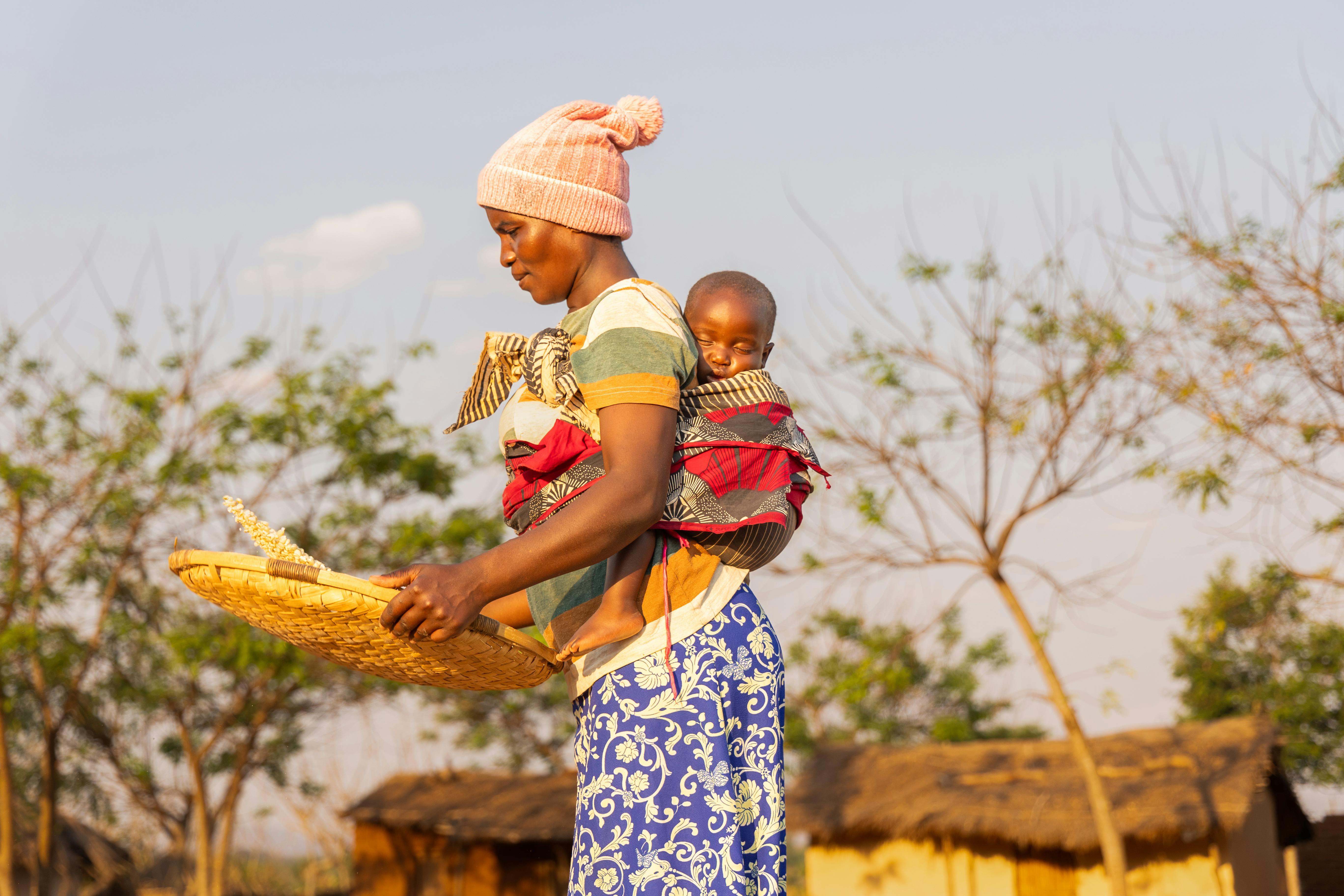
|
|
Olivia Mitchell Discusses Retirement Regrets and the Need for Increased Savings on Decoding Retirement, Yahoo Finance |
Olivia Mitchell discusses common retirement regrets and the need for increased savings due to the impending insolvency of the Social Security Trust Fund on Decoding Retirement, as reported by Yahoo Finance. Citation: "How to Avoid Retirement Regrets," Yahoo Finance, February 25, 2025. |

|
|
Rachel Werner Co-authors Issue Brief on Recommendations for Community Health Centers in Value-Based Payment Models, Penn LDI |
Rachel Werner co-authored an issue brief in Penn LDI, offering recommendations to enhance Community Health Centers' participation in value-based payment models and align these efforts with health equity goals. Citation: "Issue Brief: Paying for Value and Health Equity in Community Health Centers," Penn LDI, P Chatterjee, R Werner, J Weiner, February 25, 2025. |

|
|
Dennis Culhane quoted on California's reliance on shelters as a failed solution to homelessness, Cal Matter |
“The shelters are not a solution,” Dennis Culhane told Cal Matters, “We have every reason to believe that if we scaled up income support and provided rental assistance, we would probably see the homeless numbers cut in half.” Citation: "‘A Volunteer Jail’: Inside the Scandals and Abuse Pushing California’s Homeless Out of Shelters," Cal Matters, L Hepler, February 25, 2025. |

|
|
achel Werner Explores How Value-Based Payment Models Can Better Support Community Health Centers WhilHEALTH EQUITYe Advancing Goals of Health Equity, Penn LDI |
Rachel Werner, as reported by Penn LDI, highlights ways to enhance value-based payment models to better support community health centers and advance health equity. Citation: "Issue Brief: Paying for Value and Health Equity in Community Health Centers," Penn LDI, P Chatterjee and R Werner, February 25, 2025.
|

|
|
Olivia Mitchell Discusses Regrets Individuals Are Facing in Retirement, Yahoo Finance |
In an episode of Decoding Retirement on Yahoo Finance, Olivia Mitchell explains that, due to the projected insolvency of the Social Security Trust Fund, retirement planners will need to increase their personal savings to ensure financial security in retirement. Citation: |

|
|
Derek Griffith Calls for Greater Focus on Men's Health to Address Longevity Gap, NPR |
In an Interview with NPR, Derek Griffith talks about the widening longevity gap between men and women, advocating for greater national focus on men's physical and mental health. Citation: "Men Die Younger than Women. Is It Time for a Focus on Men's Health?" NPR, February 19, 2025. |

|
|
Iourii Manovskii Co-Authored Research on Local Labor Market Dynamics and Unemployment Variability, Federal Reserve Bank of Minneapolis |
Lourii Manovskii's research on local labor market dynamics and unemployment variability was featured in the Federal Reserve Bank of Minneapolis. Citation: "Unemployment is Local," Federal Reserve Bank of Minneapolis, L C McKay, November 13, 2024. Kuhn M, Manovskii I. et al. 2024. "The Geography of Job Creation and Job Destruction." Federal Reserve Bank of Minneapolis. |
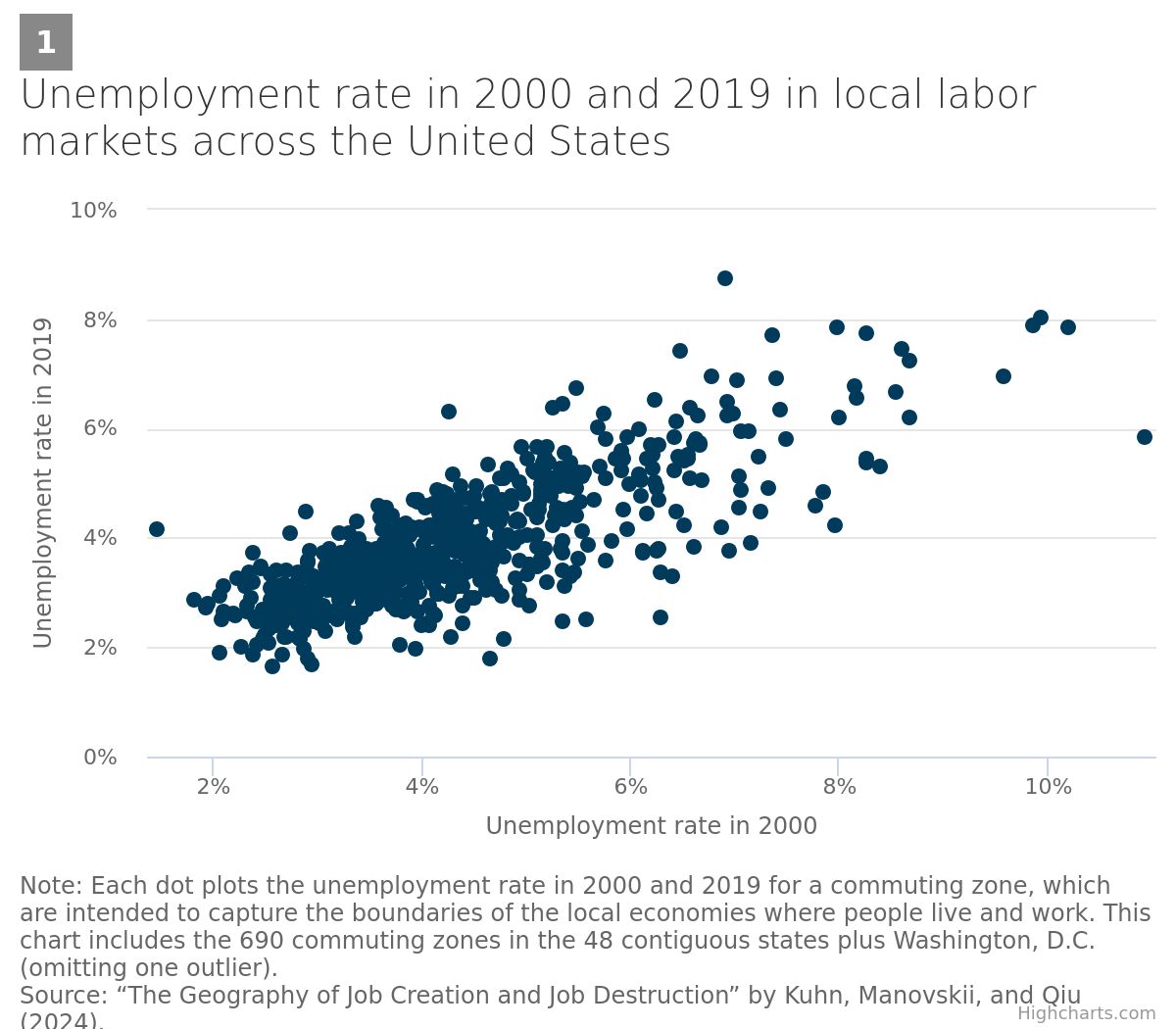
|
|
PAA President Irma Elo Speaks on the Recent Federal Data Purge, NPR |
"The government should restore all the data that had been previously collected and make it available," says Irma Elo. She describes the federal statistical system, which collects population-level census and health data, as "the only independent source of data that we have." "You cannot just replace it without having a huge influx of resources," she says, or without the expertise of statistical agencies that have collected and published these data for decades. Citation: "Some Federal Health Websites Restored, Others Still Down, after Data Purge," NPR, W Stone, P Huang, February 6, 2025. |
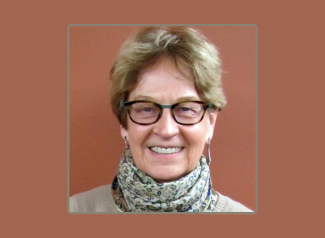
|
|
Molly Candon Analyzed Employer-Sponsored Digital Health Platforms for Mental Wellness, Jama Network Open |
Molly Candon and Rebecca E. Stewart review a study in Jama Network Open on employer-sponsored digital health platforms for mental wellness, emphasizing cost savings while advocating for a broader perspective on their long-term value. Citation: "Employer-Sponsored Digital Health Platforms for Mental Wellness—A Good Investment," Jama Network Open, M Candon, R Stewart, February 5, 2025. |

|
|
Eric Bressman and Kevin Volpp Co-authored Research on Digital Health Innovations for Hypertension Management, Penn LDI |
Eric Bressman and Kevin Volpp co-authored a study highlighted in Penn LDI, which examined the effectiveness of BP Pal, a text message-based hypertension management program, revealing high patient engagement but underscoring the need for rigorous testing of digital health innovations. Citation: "Automated Text Messaging for Hypertension Gets High Ratings—and Shows why Randomized Controlled Trials are Important," Penn LDI, C Tachibana, February 4, 2025. Bressman E, Volpp. et al. 2024. "Automated Text Message-Based Program to Improve Uncontrolled Blood Pressure in Primary Care Patients: A Randomized Clinical Trial." Journal of General Internal Medicine. |

|
|
New Working Paper: Floods, Community Infrastructure, and Children's Heterogeneous Learning Losses in Rural India |
A new working paper by Emily Hannum, Nazar Khalid, Jere R. Behrman and Amrit Thapa was published in the Population Center Working Paper Series. Title: Floods, Community Infrastructure, and Children's Heterogeneous Learning Losses in Rural India Abstract: India has the world’s largest number of school-aged children. The majority live in rural areas, many of which are highly flood-prone. Previous studies document that in such areas, floods are associated with lower enrollments, attendance, and learning, in some cases with differentiation by gender, caste/religion, and family SES. Previous literature suggests that components of community infrastructure have positive associations with children’s learning. However, previous literature has not addressed whether better community physical and social infrastructures are associated with (1) smaller flood-related learning losses on average, (2) different learning for marginalized versus other children in the absence of floods, and (3) different vulnerabilities to floods for marginalized versus other children. This paper finds that (1) most aspects of community physical and social infrastructure are not associated with lower flood-related learning losses on average, but proximity to towns and several components of social infrastructure are associated with lower flood-related learning losses on average, (2) community physical and social infrastructure components have heterogeneous associations, in some cases increasing, in most cases not affecting, and in other cases reducing disparities in learning between marginalized and other children in the absence of floods, and (3) community physical and social infrastructure components have heterogeneous effects, in some cases increasing, in most cases not affecting, and in other cases reducing disparities in learning between marginalized and other children in the presence of floods. Citation: Khalid, Nazar, Jere R. Behrman, Emily Hannum and Amrit Thapa. 2025. “Floods, Community Infrastructure, and Children’s Heterogeneous Learning Losses in Rural India.” University of Pennsylvania. Population Center Working Paper (PSC/PARC), 2025-117. |
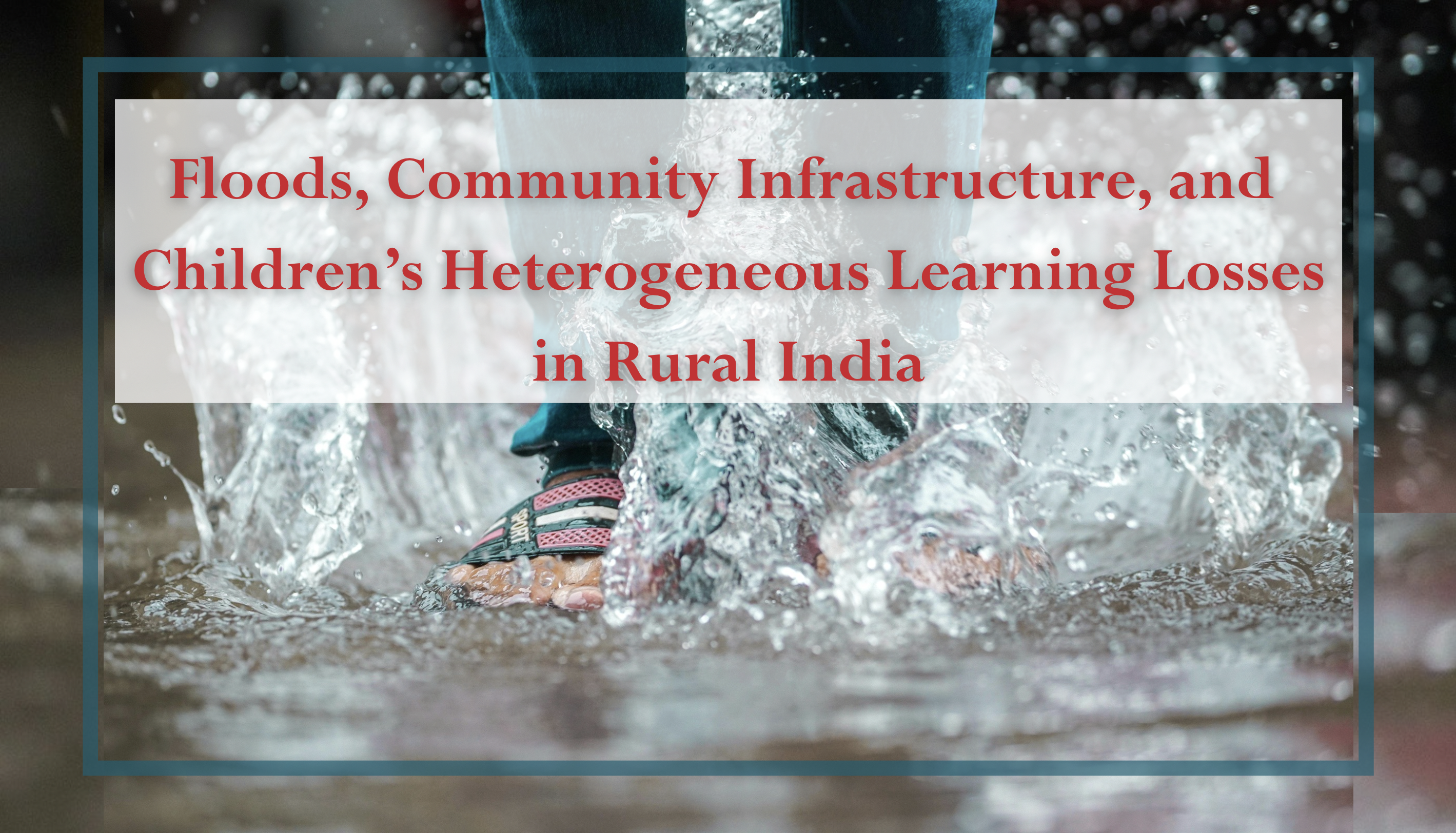
|
|
Jason Karlawish Discusses Dementia Care and Memory Research, All Home Care Matters |
In a conversation with All Home Care Matters, Jason Karlawish discusses advancements in dementia care and memory research. Citation: "The Co-Director of the Penn Memory Center Dr. Jason Karlawish," All Home Care Matters, February 2, 2025. |

|
|
Karen Lasater Co-authors Study on the Role of Nurse Work Environments in Improving Care for Individuals with Limited English Proficiency, Penn LDI |
Karen Lasater co-authored a study, reported by Penn LDI, exploring how nurse work environments impact care for individuals with limited English proficiency (LEP). Citation: Sliwinski K, Lasater K. et al. 2025. "Reducing Disparities in Emergency Department Outcomes for Individuals with Limited English Proficiency: The Nurse Work Environment," Science Direct. |

|
|
George Demiris Leads AI and Nursing Science Workshop to Shape the Future of Healthcare, Penn Nusring |
“Nursing science has always been at the forefront of innovation, driven by a deep commitment to improving human health,” said workshop chair George Demiris to Penn Nursing. “By embracing the potential of AI, we can unlock new frontiers in patient care, empower nurses with advanced tools, and ensure that technology meets the needs of individuals and communities.” Citation: "The Future of Nursing: Embracing the Power of AI," Penn Nursing, January 30, 2025. |

|
|
Lance Freeman Among Expert Voices Discussing Bold Actions for Expanding Sustainable and Affordable Housing, Penn IUR |
In Penn IUR, Lance Freeman discusses the need for updated comprehensive plans and streamlined approval processes to address the housing shortage and expand affordable housing supply. Citation: "Expert Voices 2025 | Access to Sustainable and Affordable Housing," Penn IUR, January 28, 2025. |

|
|
Greg Ridgeway's DDDI Initiative Encourages Data Science Collaboration at Penn, OMNIA |
Greg Ridgeway co-founded the Data-Driven Discovery Initiative (DDDI) at Penn to foster collaboration among the university's data scientists. The initiative focuses on breaking down silos and advancing interdisciplinary connections in data science across various fields, as reported by OMNIA. Citation: "The Missing Data Link," OMNIA, L Dattaro, January 28, 2025.
|

|
|
Nazar Khalid's Study Examines the Impact of Flooding on Learning Outcomes for Marginalized Children in India, OMNIA |
A study co-authored by Nazar Khalid, along with PSC Associates Emily Hannum and Jere Behrman, explores how flooding in India exacerbates learning gaps for marginalized children, underscoring climate change’s unequal impact, as reported by OMINA. Citation: "India, Floods, and Learning Outcomes," OMNIA, K Silva, January 27, 2025. Khalid N, Nehrman J, Hannum E. et al. 2024. "Floods and Children’s Education in Rural India." The Russell Sage Foundation Journal of the Social Sciences. |

|
|
Michel Guillot Leads Study on Devastating Impact of War on Life Expectancy in Gaza, Penn Today |
Penn Today highlights Michel Guillot's study, which reveals that life expectancy in Gaza has dropped by 46.3% since October 2023, from 75.5 to 40.5 years. The decline is more pronounced in men, and the study cautions that mortality estimates may be underestimated due to incomplete identification and the indirect effects of the war. Citation: Guillot M, Draidi M. et al. 2025. "Life Expectancy Losses in the Gaza Strip during the Period October 2023 to September 2024." The Lancet. |

|
|
Diana Montoya-Williams Co-Authors Preterm Birth Study Supporting New U.S. Racial and Ethnic Categorization Changes, Penn LDI |
Penn LDI features a study on birth certificate data, co-authored by Diana Montoya-Williams, highlighting how refining racial and ethnic categorizations can enhance equity in preterm birth research and outcomes. Citation: Holloway K R, Montoya-Williams D. et al. 2024. “The “Other” Race Category on Birth Certificates and its Impact on Analyses of Preterm Birth Inequity.” Journal of Perinatology. |

|
|
Jason Karlawish Writes Op-Ed on Dementia Risk and the Need for a National Strategy, The STAT |
Jason Karlawish wrote an op-ed for The STAT, urging a national strategy to address rising dementia risk, with policies and industry collaboration on healthy aging. Citation: "Dementia Risk, Higher than Thought, Requires a National Strategy," The STAT, J Karlawish, January 18, 2025. Fang M, Hu J. et al. 2025. "Lifetime Risk and Projected Burden of Dementia." Nature Medicine. |
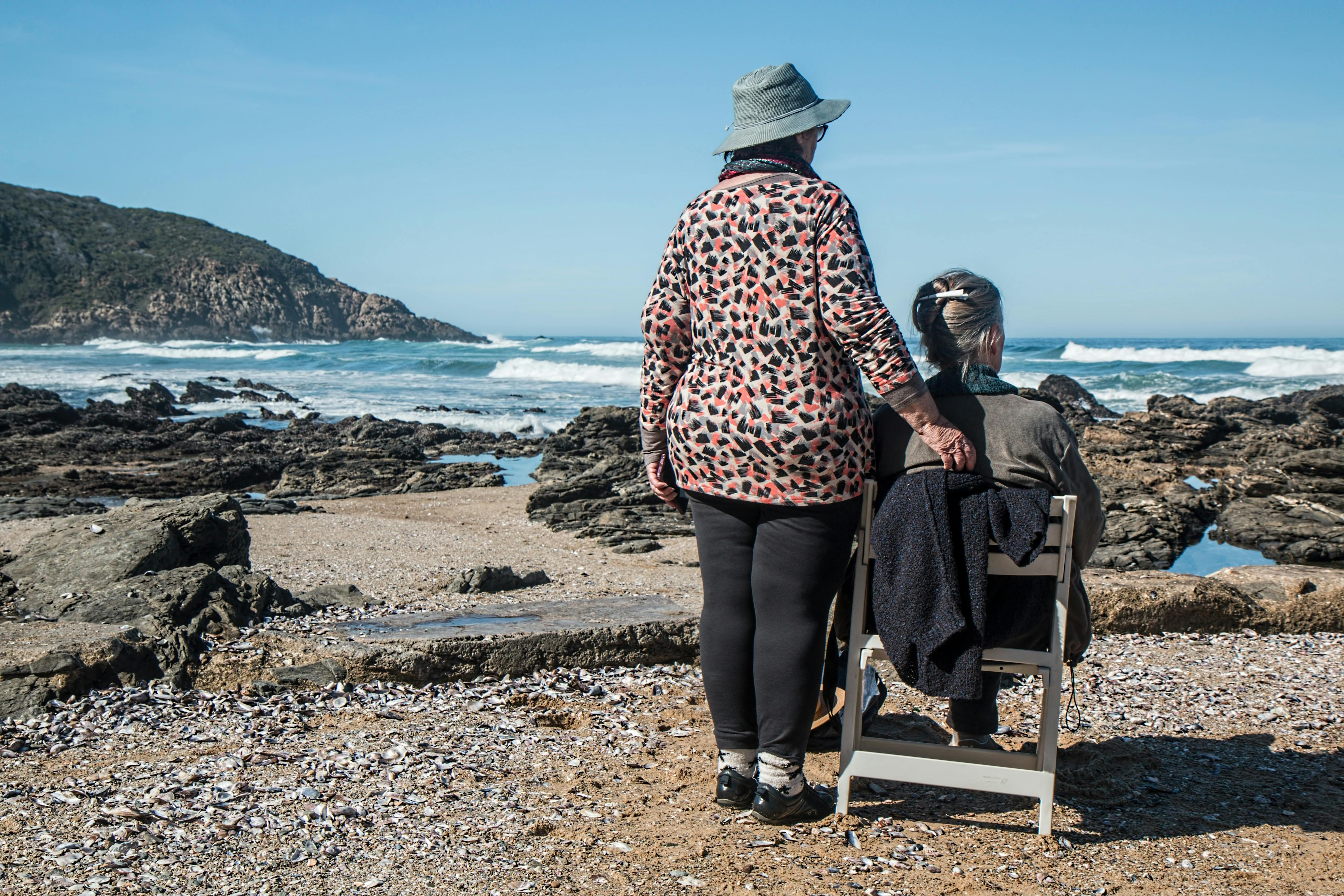
|
|
Kevin Volpp Receives AHA’s 2025 Edward S. Cooper Award from CHIBE |
Kevin Volpp Receives AHA’s 2025 Edward S. Cooper Award for Transformative Contributions to Behavioral Economics and Community Health, Reports CHIBE. Citation: "Dr. Kevin Volpp Receives AHA’s 2025 Edward S. Cooper Award," CHIBE, January 16, 2025. |

|
|
Derek Griffith Co-Authors Article on the Recent State and Federal Policies Restricting Discussions on "Divisive Concepts," Health Affairs |
Derek Griffith co-authors a Health Affairs article arguing that policies restricting discussions on structural racism undermine efforts to address health inequities. Citation: "‘Divisive Concepts’ Prohibitions: Implications For Health And Health Equity," Health Affairs, D Griffith, A Twinamatsiko, January 16, 2025. "New Article Warns Against Restricting Discussions on Structural Racism," Medical Press, January 17, 2025. |

|
|
Derek Griffith Talks about Dangers of Restricting Discussions on Structural Racism in Health Policy, Penn Nursing |
“By limiting discussions of structural racism, these policies ignore the historical and environmental factors that shape health outcomes,” Derek Griffith told Penn Nursing. Citation: "Highlighting the Dangers of Restricting Discussions of Structural Racism," Penn Nursing, January 16, 2025. Related Articles: ‘Divisive Concepts’ Prohibitions: Implications For Health And Health Equity |

|
|
Derek Griffith Co-Authors Health Affairs Brief on the Dangers of Restricting Discussions of Structural Racism in Health Policy, Penn Nursing |
Penn Nursing highlights Health Affairs Brief co-authored by Derek Griffith on the Dangers of Restricting Discussions of Structural Racism in Health Policy. Citation: "Highlighting the Dangers of Restricting Discussions of Structural Racism," Penn Nursing, January 16, 2025. |

|
|
Allison Hoffman Co-Teaches Course on Health, Disability, and Justice, Penn Carey Law |
Penn Carey Law highlights Allison Hoffman's course, 'Health, Disability & Justice,' which examines the intersections of health and disability law, with a focus on caregiving, equity, and legal regulation. Citation: "Health, Disability & Justice," Penn Carey Law, January 16, 2025. |

|
|
Molly Candon Co-authors Study Highlighting Trends in Acupuncture Use for Low Back Pain and Insurance Coverage, Penn LDI |
Penn LDI highlights research by Molly Candon and PSC research associates Rachel Werner and David Mandell, revealing that increased insurance coverage for acupuncture from 2010 to 2019 led to greater use among individuals with low back pain. Citation: "Chart of the Day: More U.S. Patients Use Acupuncture for Low Back Pain, But it Remains Rare," Penn LDI, C Weeks, January 15, 2025. Candon M, Werner R, Mandell D. et al. 2024. “Utilization of Reimbursed Acupuncture Therapy for Low Back Pain.” JAMA Network Open. |
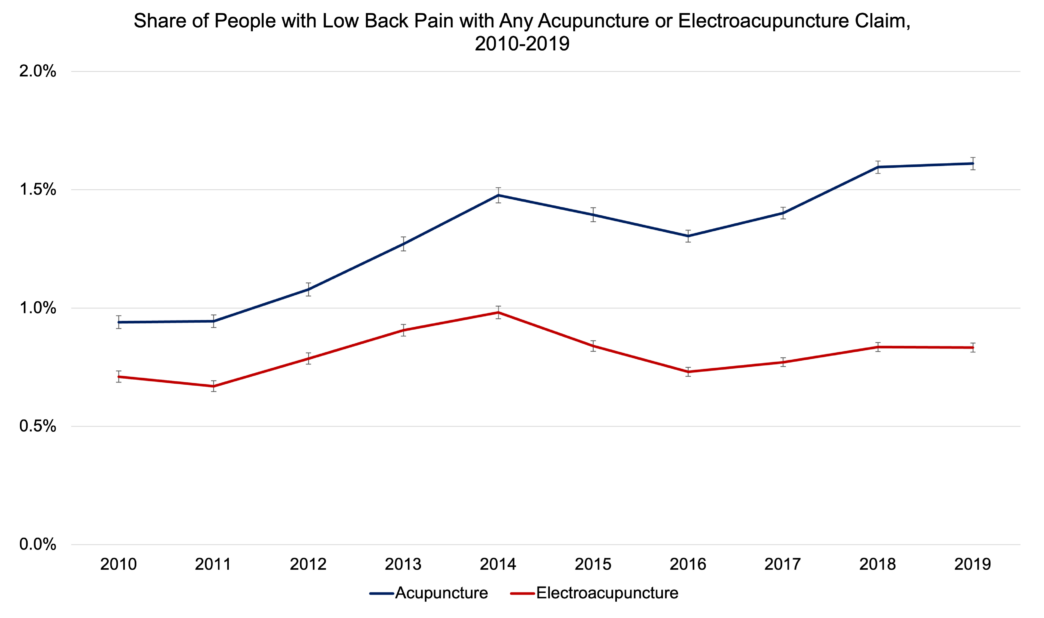
|
|
George Demiris Remarks on the Future of Nursing Care, Penn Today |
George Demiris told Penn Today, “With machine learning and natural language processing, you can extract meaning from large volumes of text, images, or other materials, gaining insights much more quickly.” Citation:
|

|
|
Dorothy Roberts Advances Reproductive Justice Through Penn Carey Law Course, Penn Today |
Penn Carey Law highlights Dorothy Roberts' Penn Carey Law course on reproductive justice, exploring legal, ethical, and constitutional issues beyond abortion access, including parenting, contraception, and freedom. Citation: "Reproductive Rights & Justice," Penn Carey Law, December 17, 2024. "Dorothy Roberts on Reproductive Rights and Justice," Penn Today, January 13, 2025.
|

|
|
Eric Bressman and Team Develop AI-Driven Handoff Tool to Ease Provider Burden, Penn LDI |
Penn LDI features Eric Bressman's AI-driven tool to enhance handoffs, reduce provider burden, and improve communication in hospital care. Citation: "2025 LDI-Penn Medicine Research Laboratory Projects Announced," Penn LDI, January 8, 2025. |

|
|
Dennis Culhane in an Interview Highlights America's Homelessness Crisis, The Signal |
Dennis Culhane in an interview with The Signal addresses the troubling increase in homelessness across the U.S., focusing on the sharp rise in homelessness among immigrants. Citation: "Mother of Exiles," The Signal, D Culhane and G Jönsson, January 7, 2025. |

|
|
2024 PSC Year In Review |
Read the PSC 2024 Year In Review annual newsletter and discover all the highlights of the Population Studies Center's work from the past year. Sections include: a letter from PSC Directors Emilio A. Parrado & Paula Fomby, 2024 By The Numbers, New Associates, Population Center Working Papers, PSC Funded Pilots, Funding, Awards & Honors, GGD Awards & Honors, In the News, Op-Eds, and Colloquium Videos. |
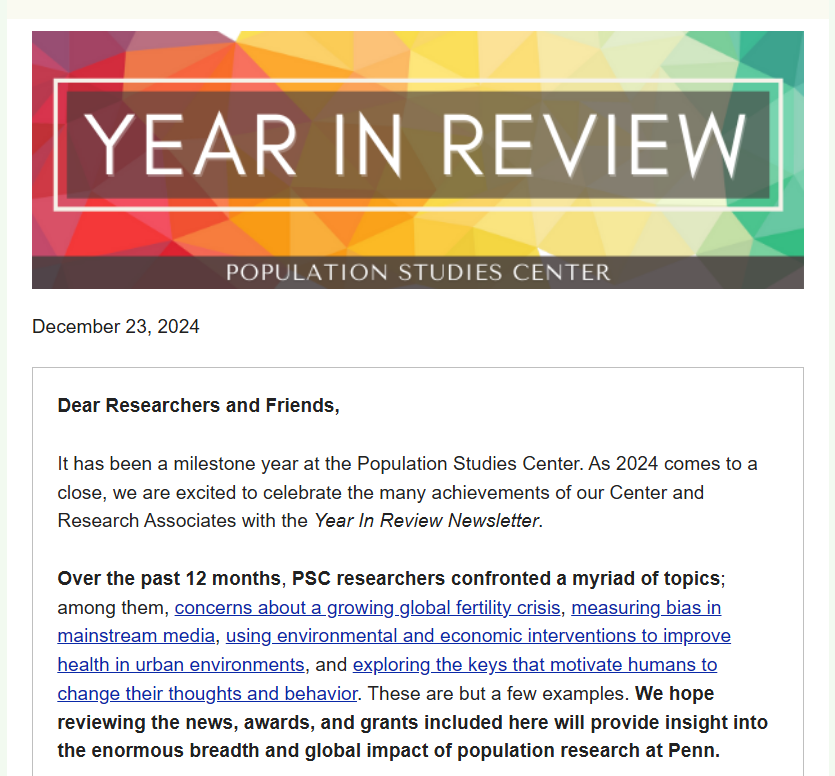
|
|
2024 PARC Year In Review |
Read the 2024 PARC Year In Review Newsletter, which includes a letter from PARC Co-Director's, PARC 2024 By The Numbers, New PARC Associates, GEAR UP, Awards & Honors, Funding, In The News, Op-Eds, Population Center Working Paper Series (PSC/PARC), and Events. |
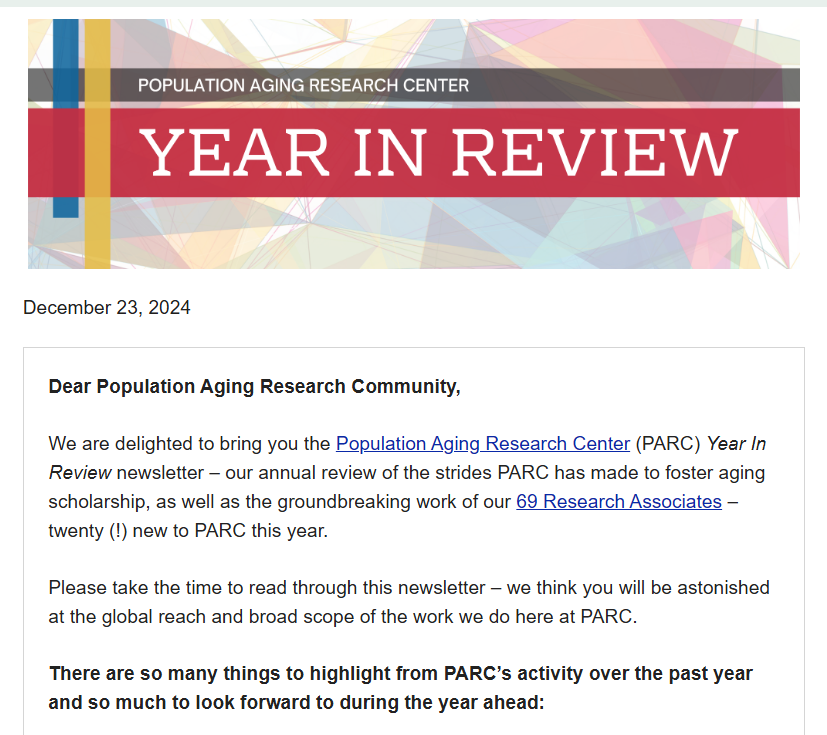
|
|
Dolores Albarracín Provides Context on the Role Media Plays in the U.S. Public's Perception of Foreign Conflict, Annenberg Public Policy Center |
Dolores Albarracín, co-author of the study highlighted by the Annenberg Public Policy Center, says, “These findings are important for media outlets and policymakers as they navigate the complex choices in how to portray and engage with international conflicts, and they also shed light on the psychological forces that shape policy support in the context of war.” Citation: "Coverage of Civilian Casualties in Allied Countries Boosts Support for U.S. Involvement," Annenberg Public Policy Center, January 6, 2025. Albarracín D, Kraitzman A. et al. 2025. "How Civilian Casualty Information Shapes Support for U.S. Involvement in an Ally Country’s War Effort." Humanities and Social Sciences Communications. |

|
|
Aaron Richterman Discusses the Health Benefits of Cash Transfer Programs in Combating Tuberculosis, NPR |
"If we think about what can take us to the next level, it's not the next drug," Aaron Richterman told NPR. "It's probably not the vaccine that we're all waiting for. It may be something like this, which I think we have good reason to believe could help potentially end something like a TB epidemic," Citation: "Tuberculosis Rates Plunge When Families Living in Poverty Receive Monthly Cash Payouts," NPR, G Emanuel, January 3, 2025. Jesus G, Silva A. et al. 2025. "Effects of Conditional Cash Transfers on Tuberculosis Incidence and Mortality According to Race, Ethnicity, and Socioeconomic Factors in the 100 Million Brazilian Cohort." Nature Medicine. Related Article: Tuberculosis rates plunge when families living in poverty get a monthly cash payout |

|
|
Hanming Fang Wins 2024 JER Best Article Award, The Japanese Economic Review |
Hanming Fang and Yi Chen won the 2024 JER Best Article Award for their article "The State of Mental Health among Older Chinese and the Role of Children" in The Japanese Economic Review. The article examined the mental health of older Chinese and the role of children. Citation: |

|
|
Dolores Albarracín Co-Authors Groundbreaking Study on Effective Behavior Change Strategies, Annenberg |
Dolores Albarracín told Annenberg. "Our research provides a map for what might be effective, even for behaviors nobody has studied. Just like masking became a critical behavior during the pandemic, but we had no research on masking, a broad empirical study of intervention efficacy can guide future efforts for an array of behaviors we have not directly studied but that need to be promoted during a crisis." Citation: "Groundbreaking Analysis Unveils Secrets to Predicting and Changing Human Behavior," Annenberg, January 1, 2025.
|
|
